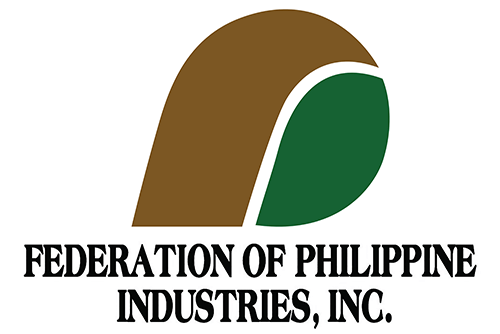our story.
Together we build success
1990

Multi-Sector groups composed of local manufacturers banded together to question the trade liberation program of the government.
In 1990, Malacañang issued Executive Order No. 413, arbitrarily lowering all the tariffs of all industrial and agricultural products by approximately half off the then existing rates. Due to its dire consequences on the viability of their respective local, industries, multi-sectoral group consisting of heads of industrial firms, producers, and industry association from all sectors grouped together and pooled their resources and decided to file a case in the Supreme Court questioning the constitutionality of the said E.0 413.
Sensing that the EO is constitutionally flawed, as the President is only allowed under the law to raise the tariff on selective basis but not across the board when congress is in recess, Malacañang withdrew E.O. 413 and left it to congress to study the tariffs. Hence, the case in the Supreme Court – became moot and academic.
However, when Malacañang replaced E.O. 413 with 470, and the group noted the set of fiscal policies being prepared to accelerate engagement in global free-trade, the multi sectoral group which include members of the PCCI, who realized that they could not get a definitive stand from their organization on issues like this since it is composed of varied groups with conflicting interest; saw the importance of formal organization — this time, an entity which will readily address the exclusive concerns of the producer as well as the manufacturing sector to be globally competitive.
1991
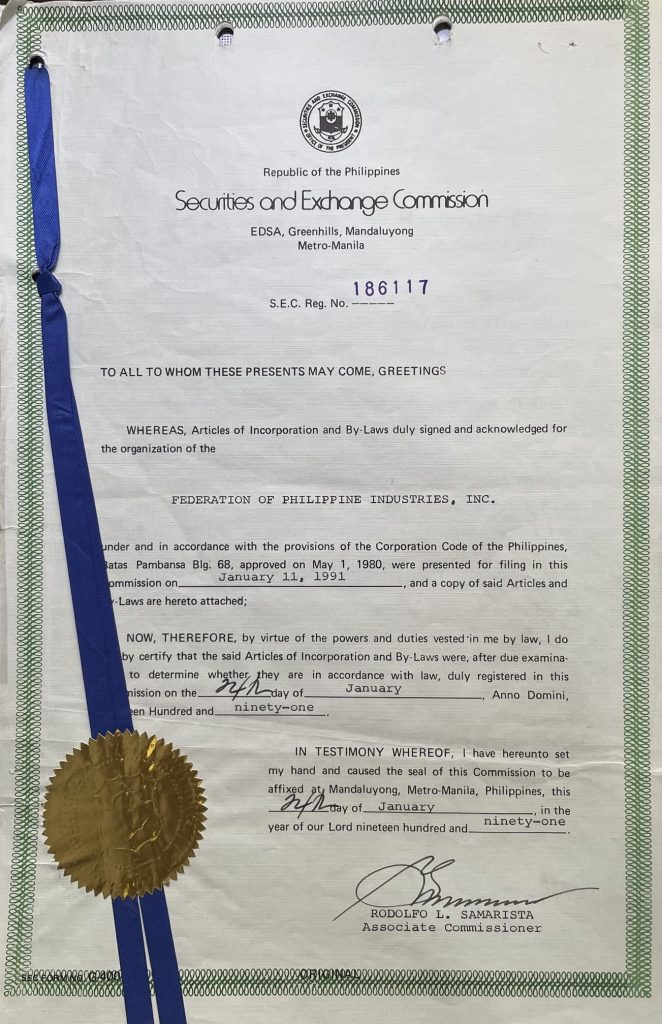
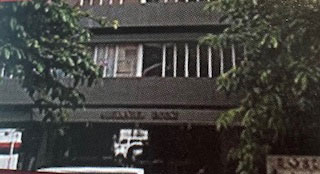
On January 24, 1991 the Federation of Philippine Industries (FPI) was officially registered with the Securities and Exchange Commission (SEC) with fifteen (15) industry leaders as incorporators.
The incorporators include Jesus Lim Arranza (CORA), Hermenegildo Zayco (TMAP), Francisco Monge (PULPAPEL), Rogelio Guadana(PABMA), Felix Maramba, Jr. (PAFMIL), Jeremias Menico (PCOPA), Maria Clara Lobregat (PCPF), Ernesto Cayetano (PEWMA); David Bonney (PAPM), Linda Chai (PSPA), Donald Dee (CGEPI), Greg Saguinsin (CONFED), Manuel Serrano (PAHRI), Hector Quesada (PPOGA), Rustica Ignacio (FPFI).
The FPI office was set-up in Makati within the premises of the Textile Mills Association of the Philippines (TMAP).
1993
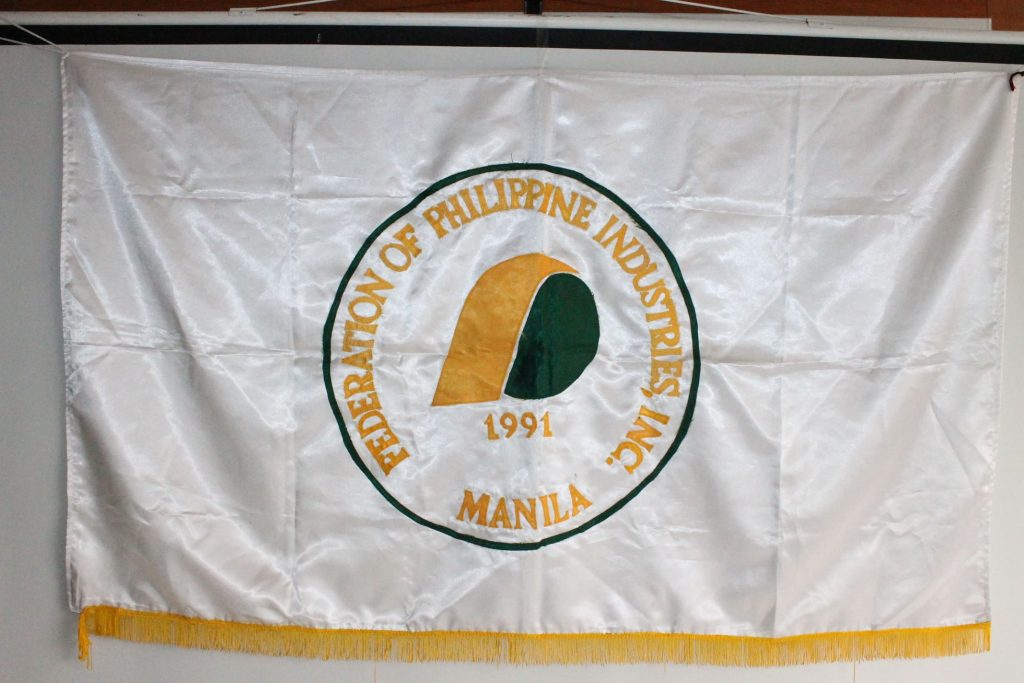
The category of associate members was opened for direct corporate membership.
The composition of the Board was changed to eight (8) members coming from industrial associations and seven (7) from business corporations.
At yearend, the total regular membership increased to twenty-five (25) industry sectors and twenty-seven (27) corporate members.
2000
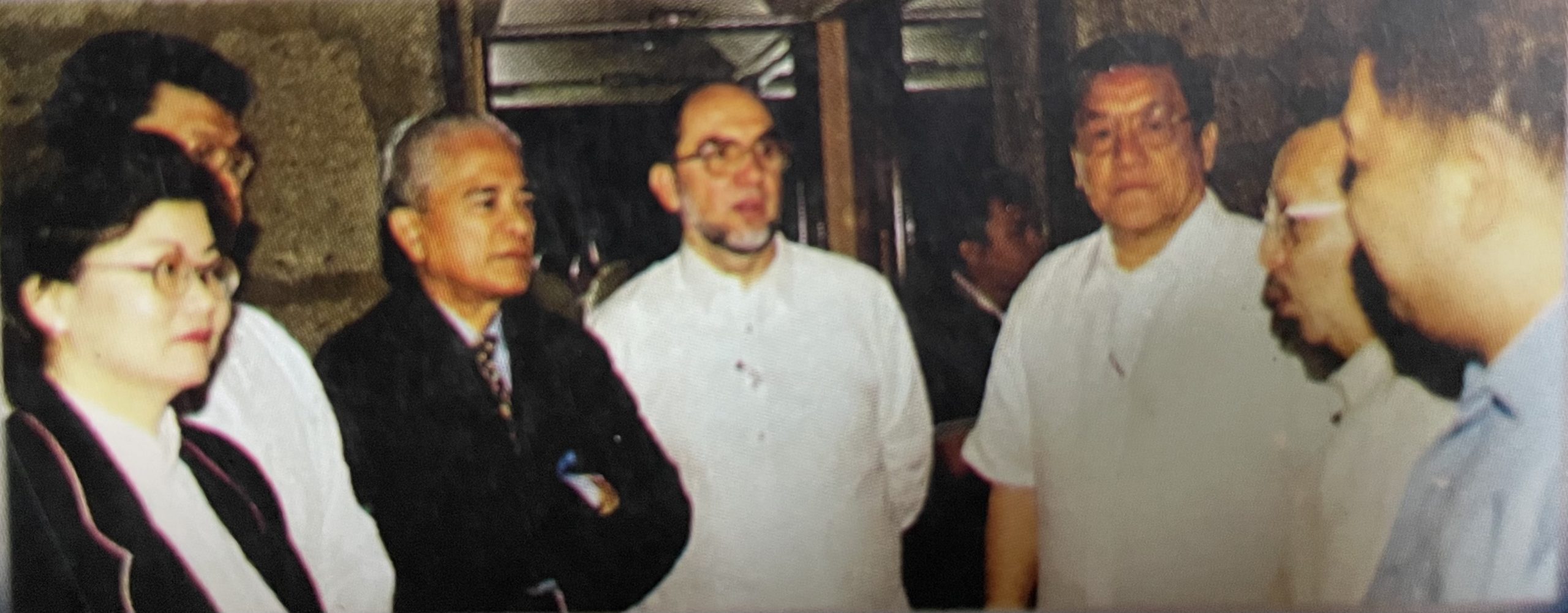
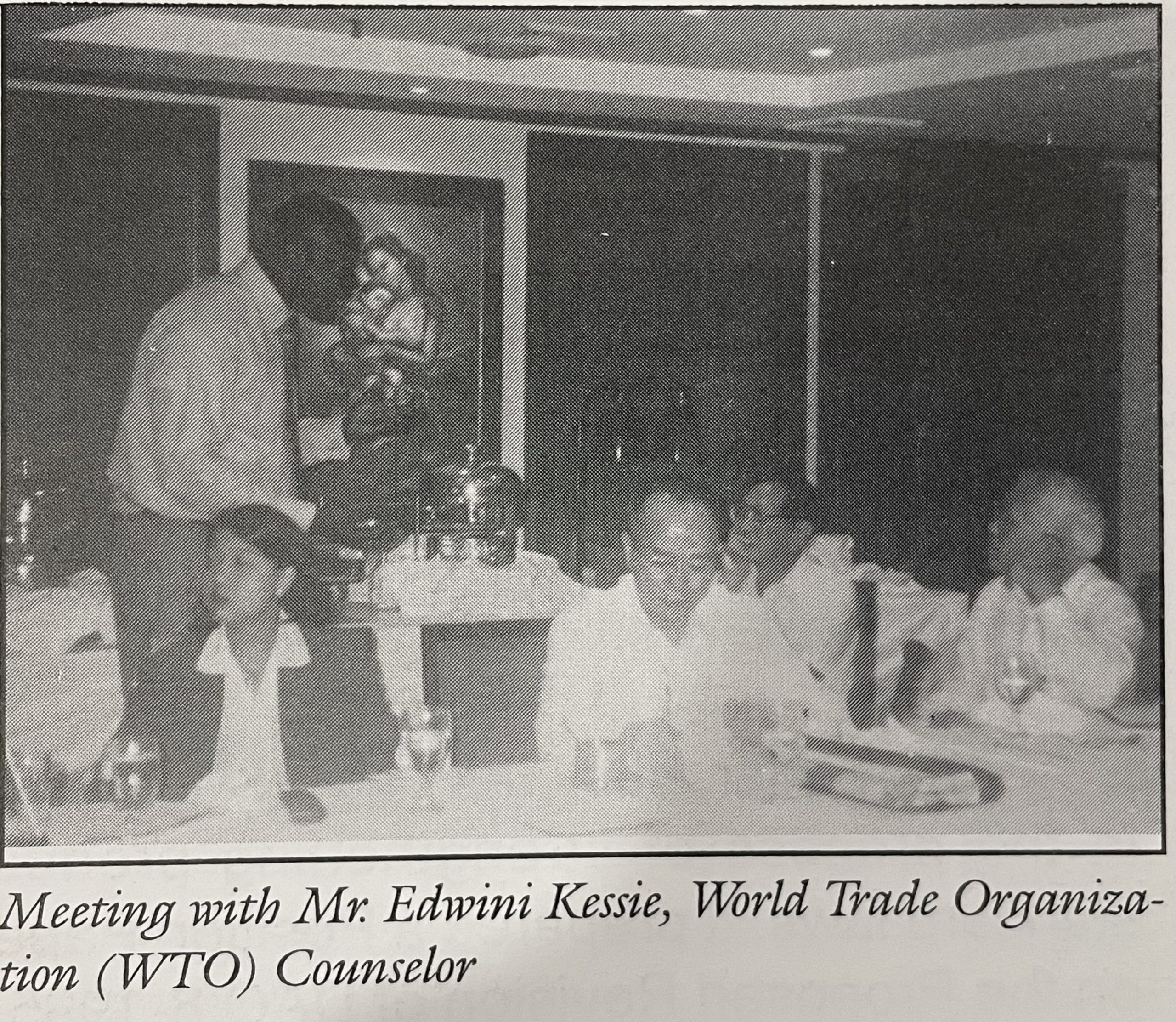
FPI actively participated in the public hearings on the safeguard measures bill and implementing rules and regulations
On July 19, 2000 Republic Act 8800 or the Safeguard Measures Act was signed into law. The implementing Rules and Regulations were published on October 4, 2000 and took effect on October 11, 2000.
FPI pushed for Private Sector Participation in International Negotiation
The Federation submitted a Position Paper on Private Sector Participation in the International Organizations to the Economic Mobilization Group-Technical Working Group on June 9, 2000. The paper advocates increased participation by the private sector in international negotiations not only in the area of trade but also in investments, finance, standards, environment and other matters which vitally affect business and industry even on an advisor or observer status.
FPI conducted seminar on the WTO for its members
On September 20, 2000, FPI organized a seminar conducted by Mr. Edwini Kessie, Counsellor, World Trade Organization (WTO) Trade Cooperation Division, designed to familiarize FPI members with the newly established rules on international trade and its implication for industry.
FPI held a dialogue with the BOC regarding the establishment of a value range for valuation screen.
On October 27, 2000, Bureau of Customs (BOC) Com. Renato Ampil issued CMO 15-2000 which provides for the guidelines in the establishment of the value range which are used as valuation screen for imported products.
2001
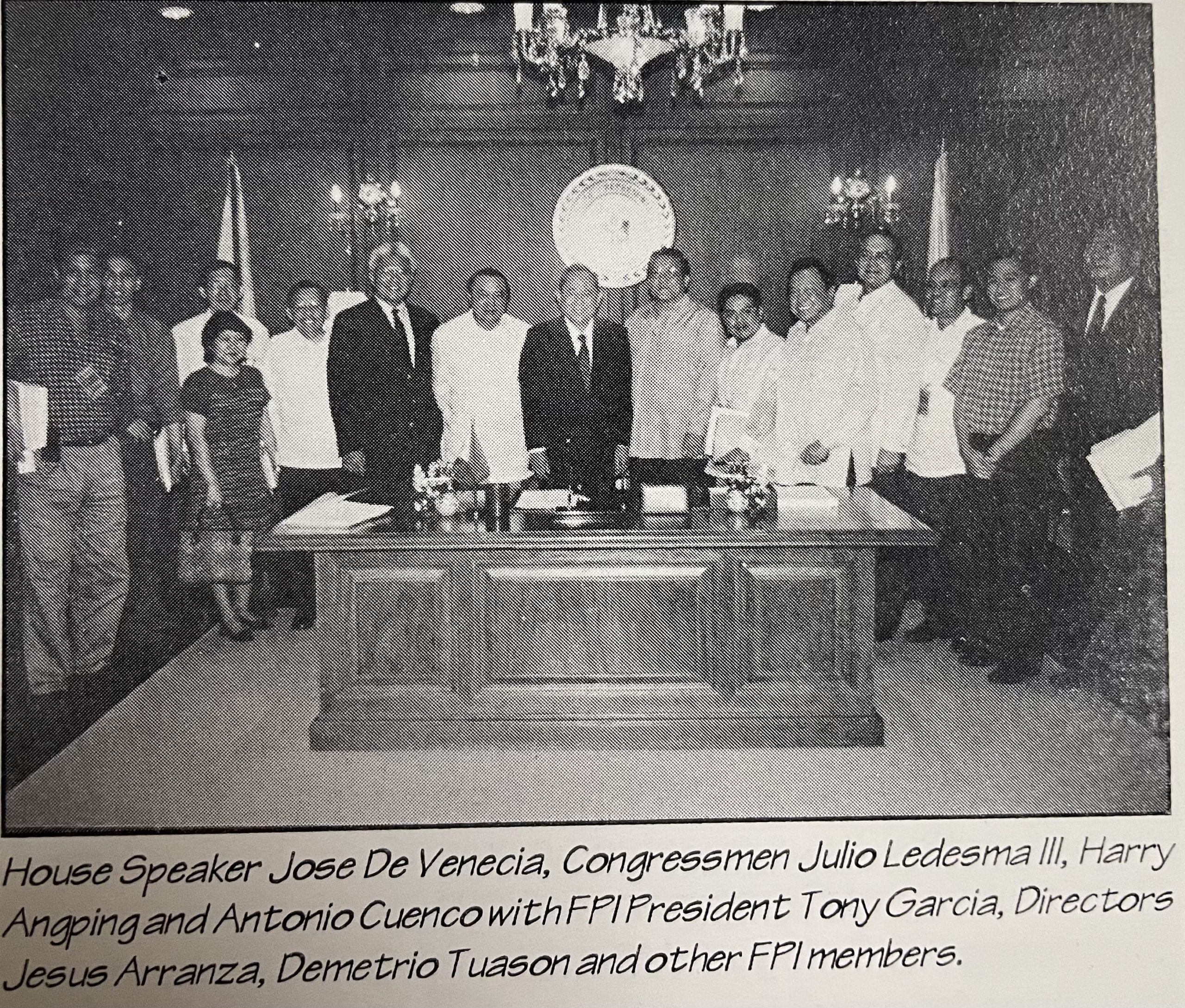
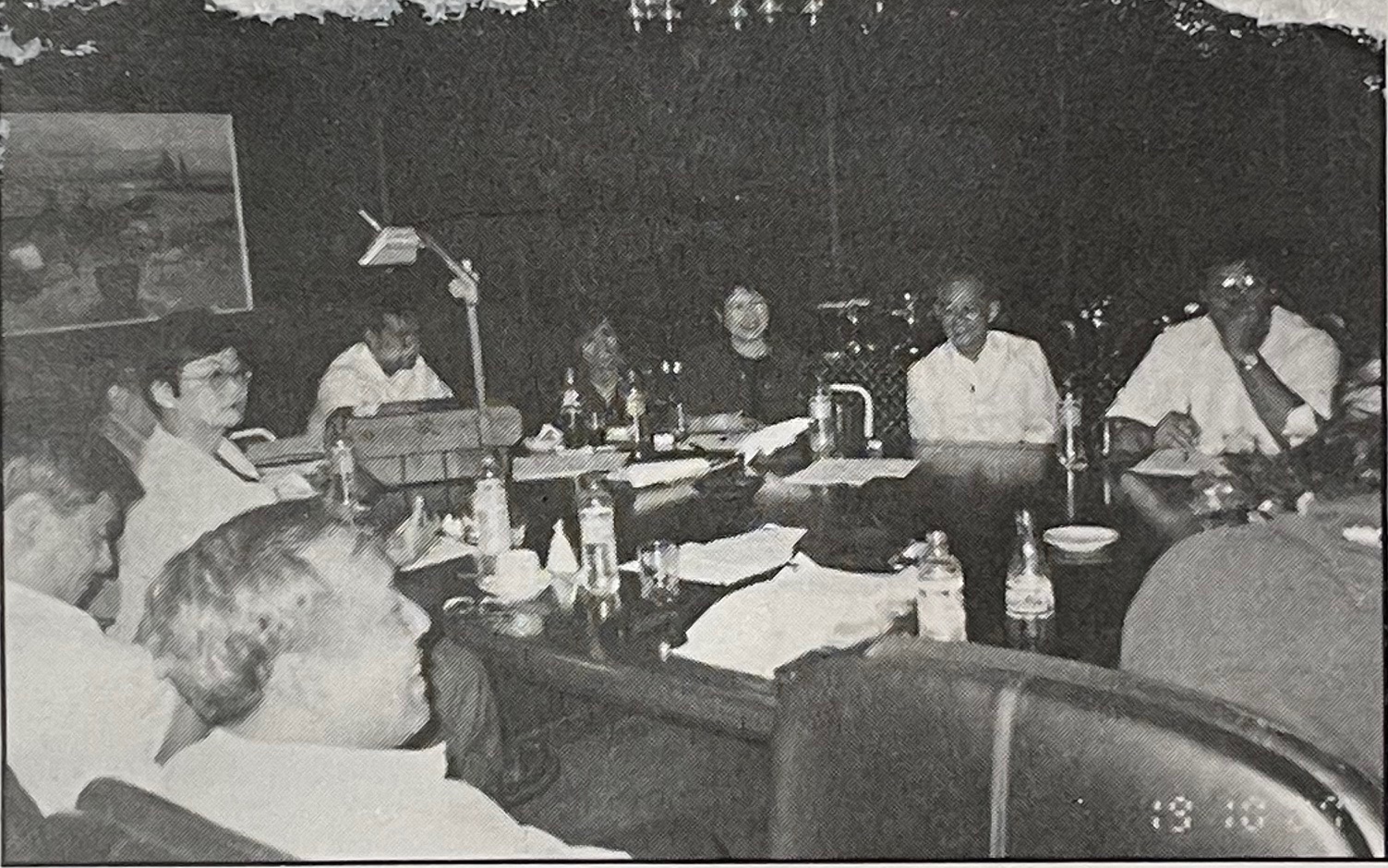
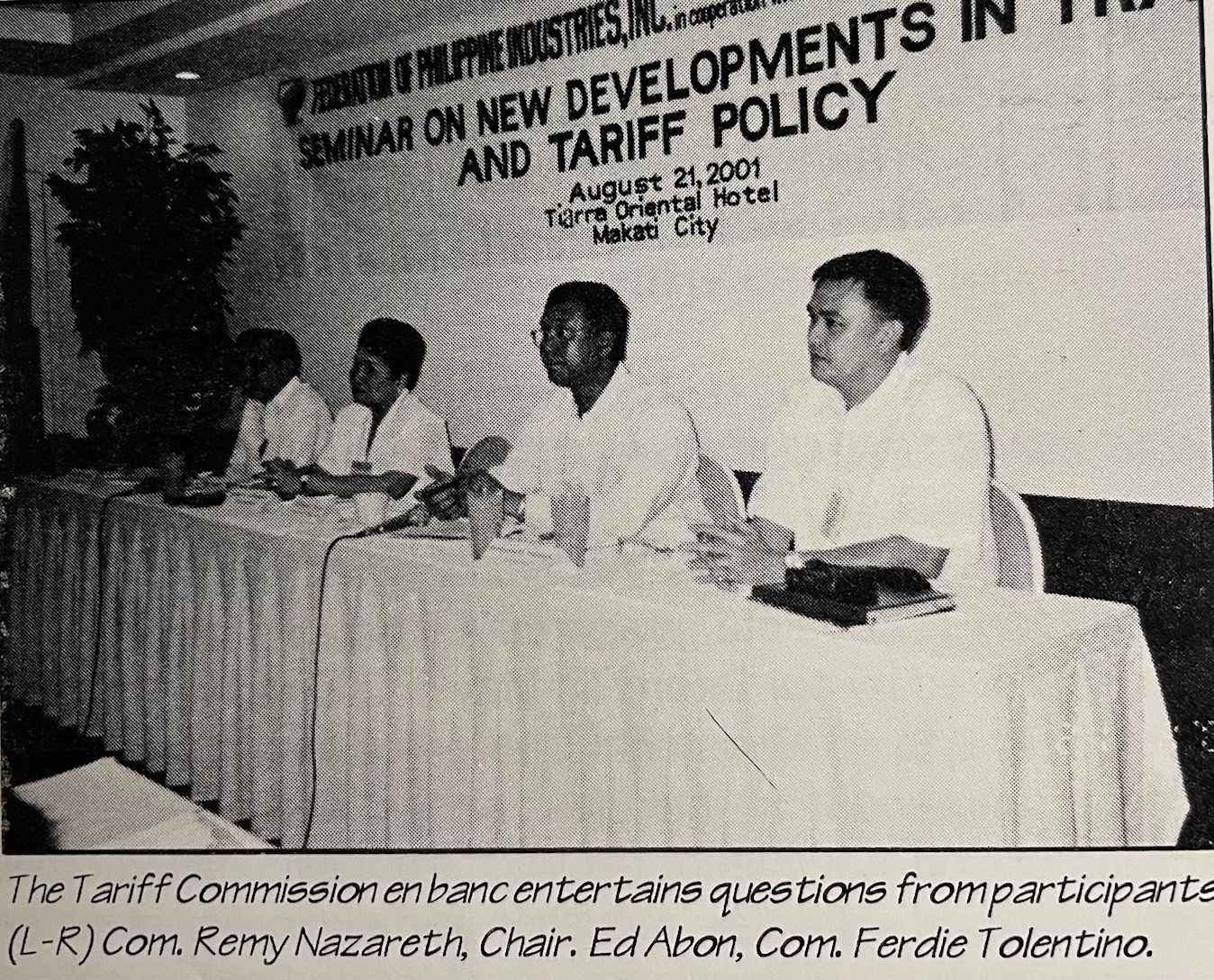
FPI strongly lobbied to increase or maintain Most-Favored-Nations (MFN) tariff rates on products that are being manufactured by local industries for years 2001 and 2002, and elimination of tariffs on raw materials and inputs which are not locally manufactured.
On January 3, 2001, EO 34 was signed by the President setting the MFN tariff rates on all articles for 2001 up to 2004. This secured a decision from the Cabinet-level TRM Committee to freeze the tariff rates on most finished products for one year.
FPI conducted seminar on new developments in trade and tariff policy
On August 21, 2001, in cooperation with the Tariff Commission FPI organized a seminar on “New Developments in Trade and Tariff Policy”. The topics discussed were the Tariff Reform Program; Tariff Commitment under the WTO; CEPT-AFTA; Harmonized System/Rules of Origin; Anti-Dumping Duty; Countervailing Measures and Safeguard Measures.
FPI submitted a position paper on Supreme Court Administrative Circular No. 12-2000 which was issued on November 21, 2000 which allows an issuer of a bounced check to escape imprisonment by merely paying a fine. This will cause the widespread issuance of checks with insufficient fund or even drawn against closed account which may be a hindrance to doing business in our country.
2002
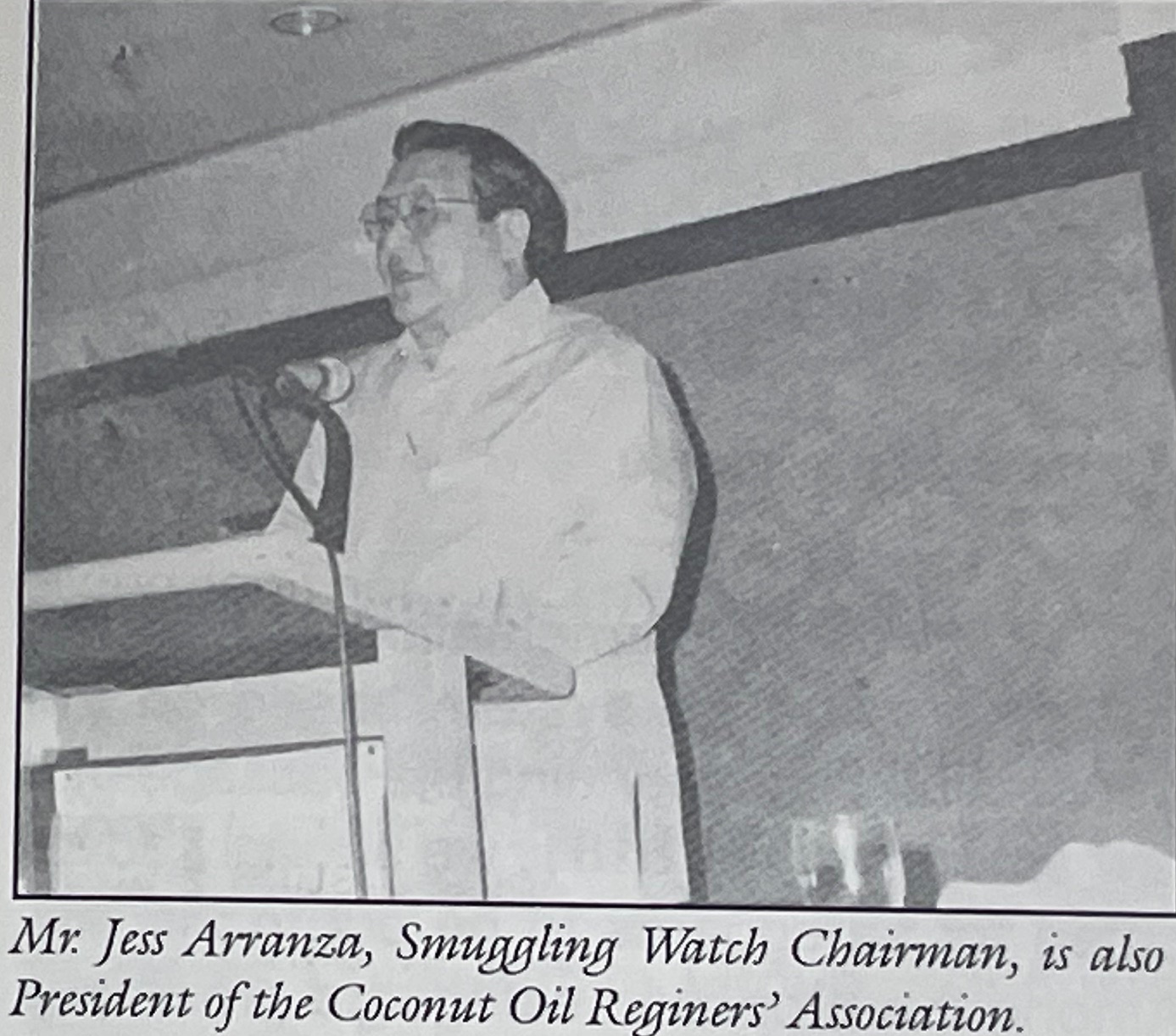
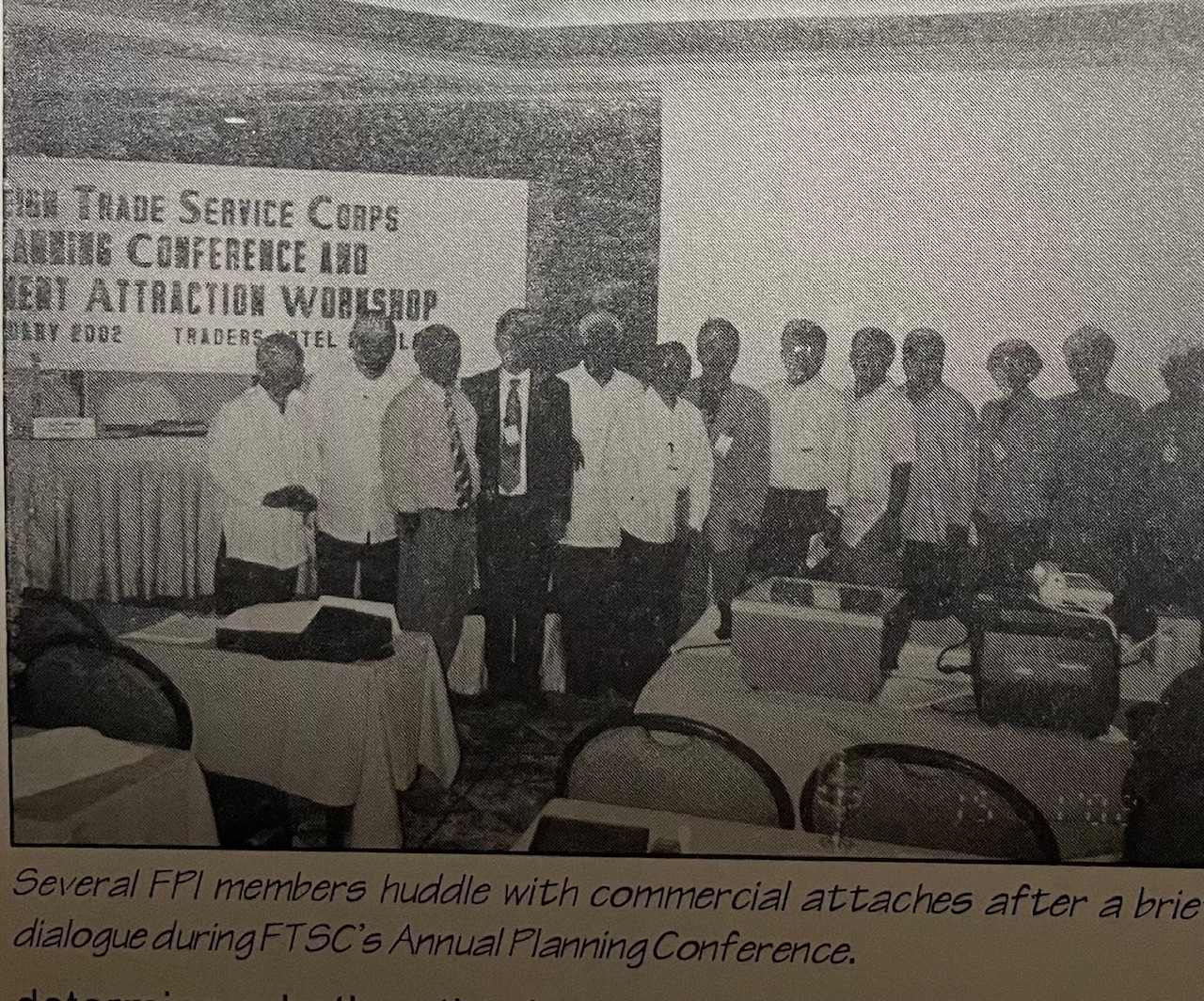
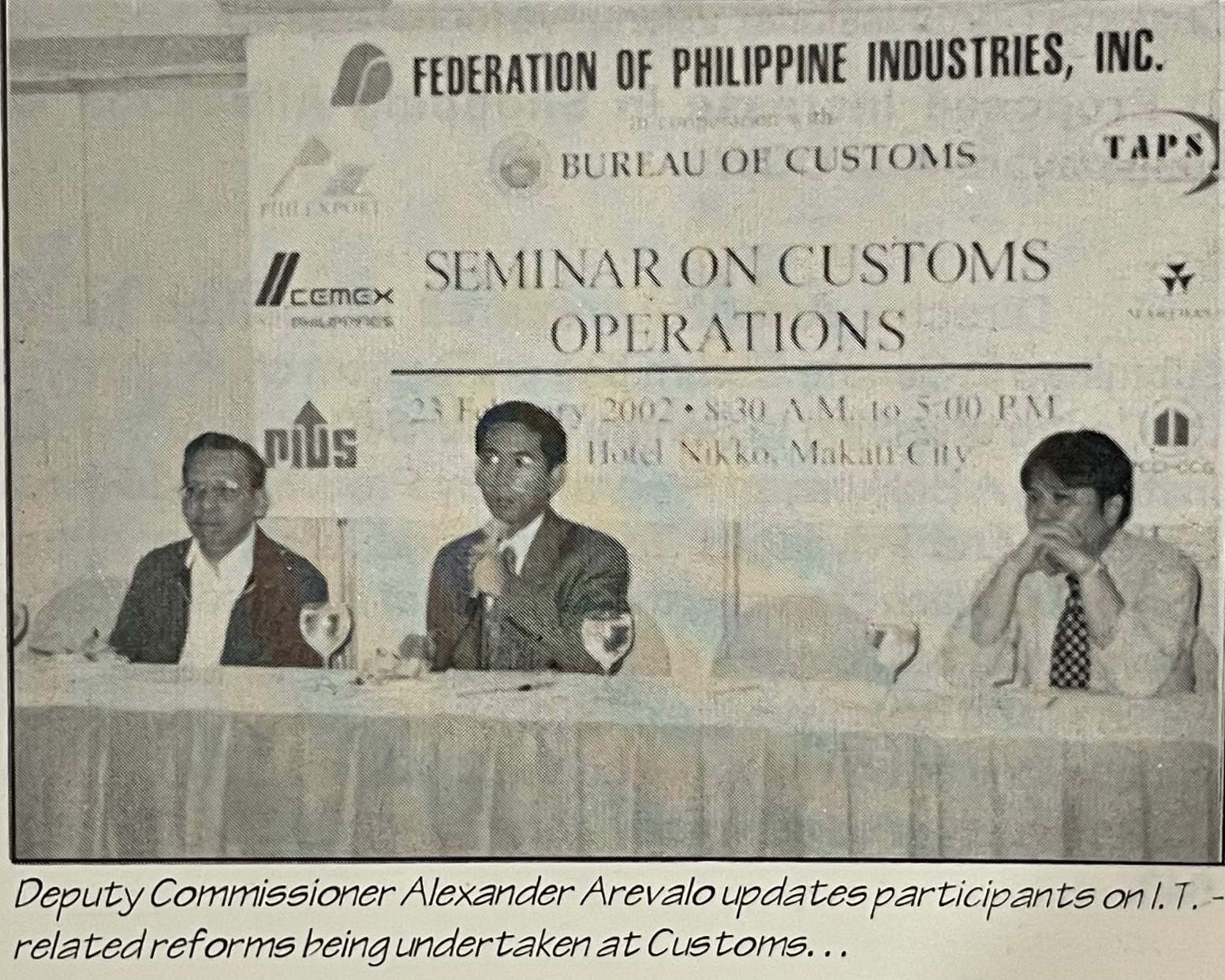
FPI pushed for the prohibition on donations of imported Used Clothing to prevent garment smuggling.
Through the advocacy of Smuggling Watch Chair Jesus L. Arranza, Department of Social Welfare and Development (DSWS) Secretary Corazon Juliano Soliman issued Administrative Order No. 19 on January 9, 2002, prohibiting the donation of imported used clothing to NGOs to stop the influx of such articles, popularly called ukay-ukay. Imported used clothing are disguised as donations to NGOs to avoid payment of taxes and duties. This practice undermines the sales of local garment makers. Worn clothing and other worn articles are levied a 15% tariff.
FPI dialogue with Foreign Trade Service Corps for updated tariff schedule and benchmarking.
On January 15, 2002 FPI held a dialogue with the Foreign Trade Service Corps on the occasion of their Annual Planning Conference for updated tariff schedules in key countries; cost benchmarks to determine whether the key costs of production in the Philippines are competitive with other countries; information needed in applying for anti-dumping, countervailing and safeguard measures, and specific country situationer.
FPI conducted seminar on customs operations
On February 23, 2002 FPI held a Seminar on Customs Operations attended by 76 participants. The seminar briefed the business sector on key operations of the Bureau of Customs particularly on transaction valuation; bonded warehouses; certification procedures for Rules of Origin; and auction & disposition of confiscated goods.
2003
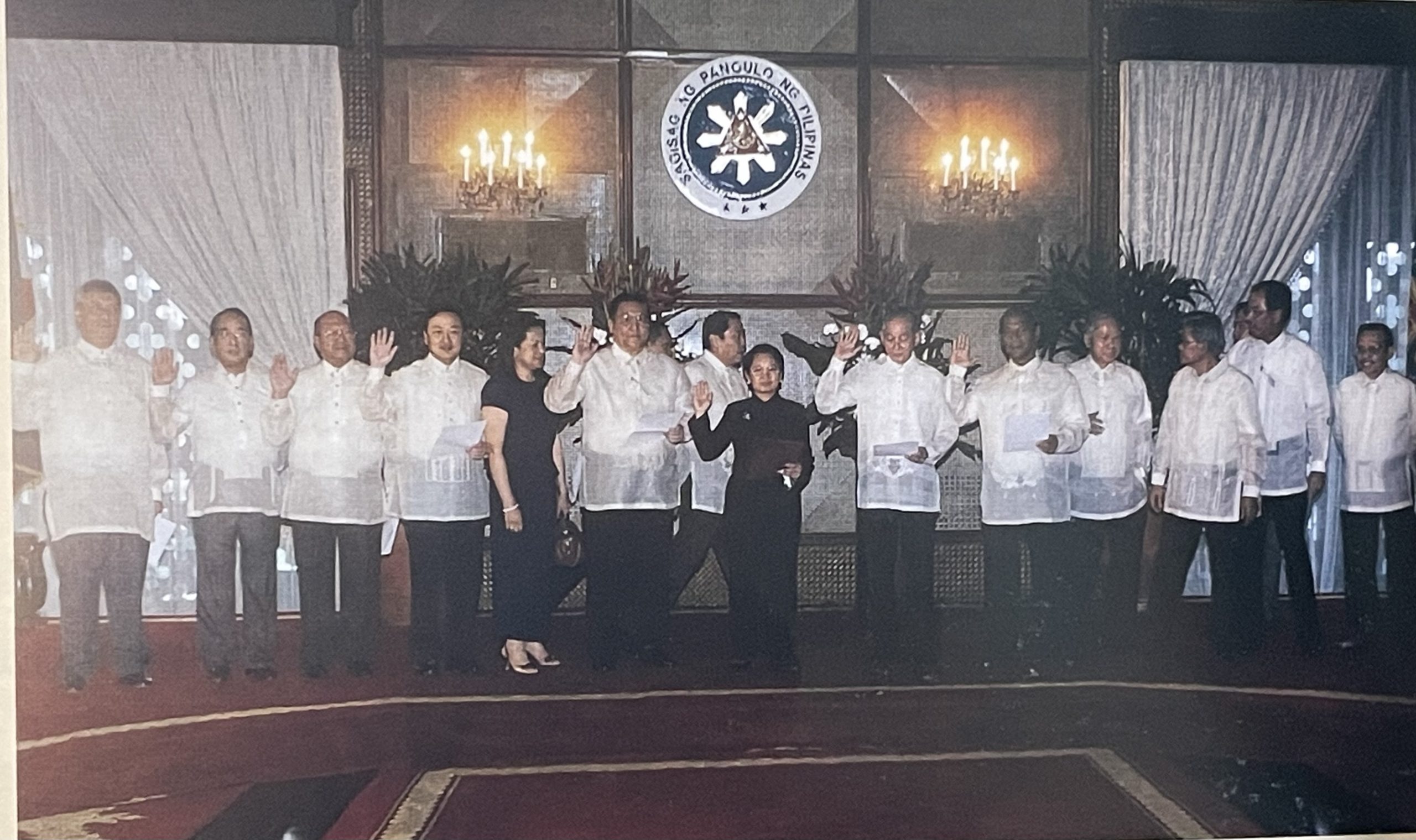
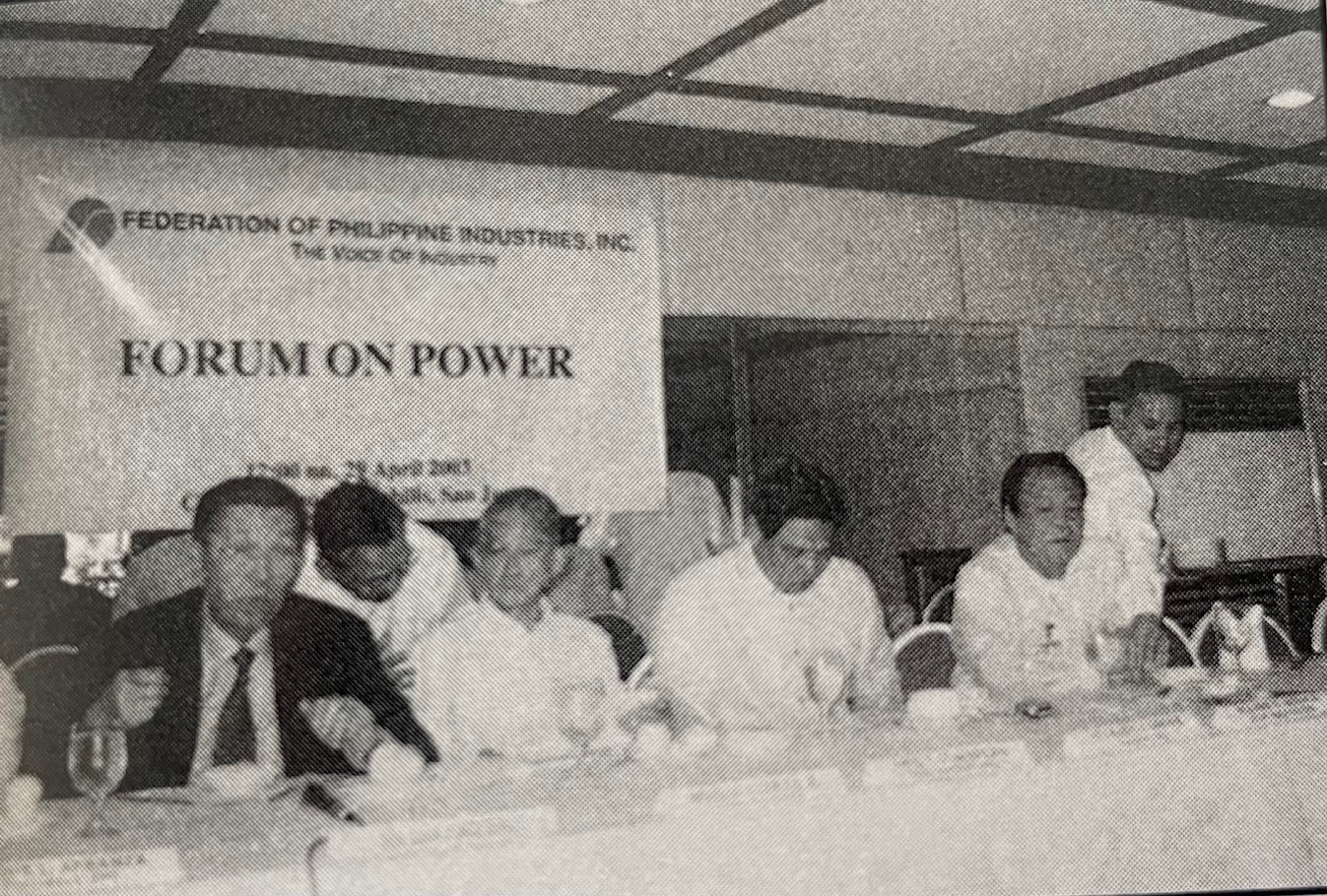
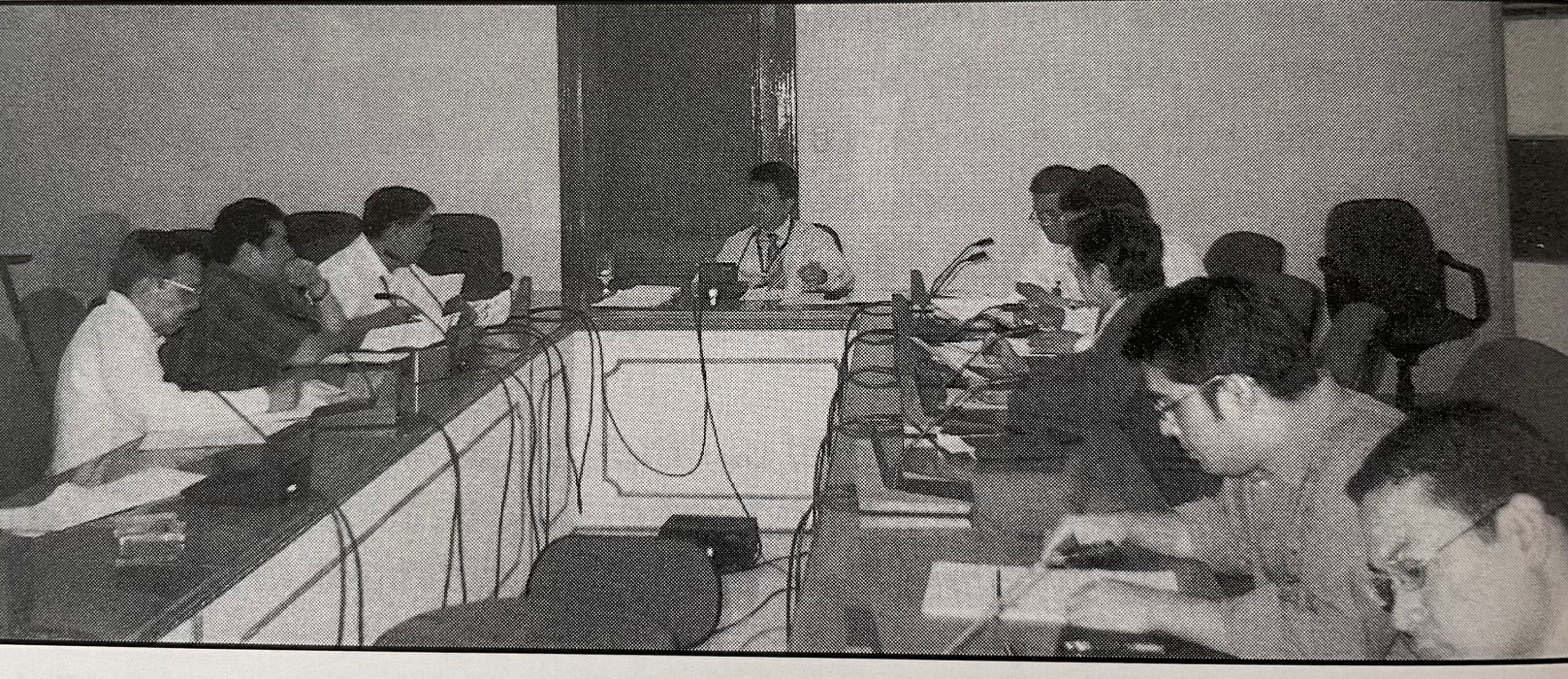
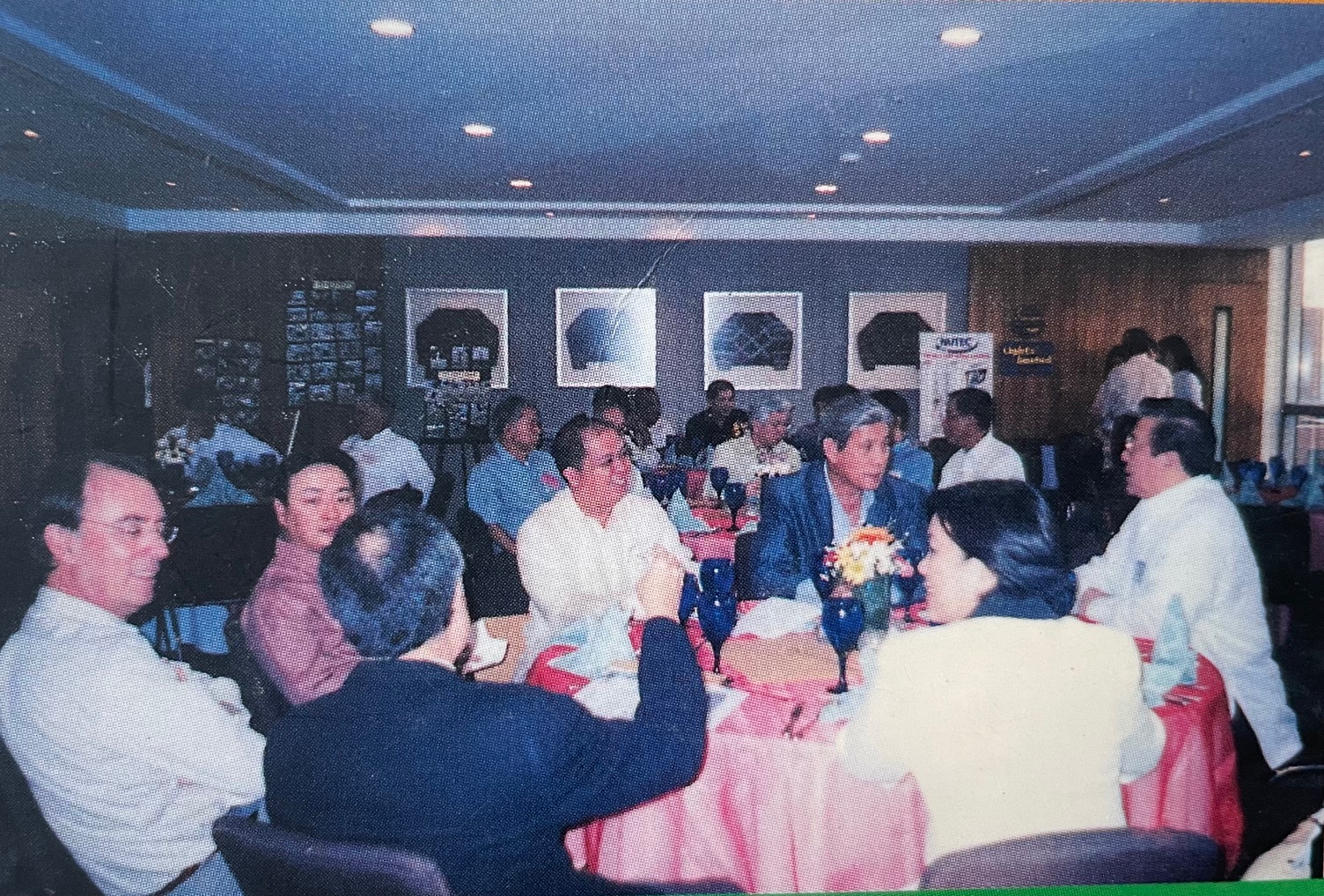
FPI strongly lobbied for the immediate passage of the Anti-Smuggling Bill
FPI conducted a Forum on Energy
The Federation sponsored a Forum on Energy on April 29, 2003 at the Club Filipino, Greenhills, San Juan, with former Senator Juan Ponce Enrile as the main speaker. The aim of the Forum was to understand the key features of the Electric Power Reform Act (EPIRA) to discuss related issues.
FPI pushed for the Accreditation of Importers. As a result, on November 19, 2003, DOF Secretary Jose Isidro Camacho issued a directive to the Bureau of Customs to issue a Customs Memorandum Order setting out the procedure in the accreditation of importers, including consultation with the private sector, in order to weed out fictitious importers.
FPI persistent followed-up resulted in the activation of the Post Entry Audit Group (PEAG) of the Bureau of Customs. This move by FPI was due to the shipment of an unscrupulous importer of Gajah Tungal Tires declaring each tire at US$5.00. This importation was referred to PEAG for deliberation and resolution.
On April 30, 2003 FPI held a dialogue with BOC Commissioner Bernardo recommending that the Industry Association should first be consulted on the formulae of manufacture used by Customs Bonded Warehouse (CBW) operators prior to the importation of their required raw materials. The correct formulae will help minimize the possibility that these can be exploited to hide technical smuggling such as the provision of 30% wastage in the case of tin can manufacturing. Indeed, if there is a 30% wastage, that business should already close. Com. Bernardo welcomed the recommendation of the Industry Association on the existing formulae.
Pact with ASIIC, NPC and BAGCOR
On September 10, 2003, FPI thru the Chairman of the Anti-Smuggling Committee, Mr. Jesus Arranza, entered into a Memorandum of Agreement with the Anti-Smuggling Intelligence and Investigation Center (ASIIC) led by Col. Carlos Holganza and Police Sr. Supt Raul Castañeda and the National Press Club (NPC) headed by NPC President Antonio Antonio. Under the MOA, FPI will inform ASIIC about cases of technical smuggling as well as any other violations of the Tariff and Customs Code. The ASIIC will act promptly on the information received through seizure of the contraband or otherwise prevent its entry into the local market so that these will not prejudice Philippine Manufacturers. The NPC will publicize cases of smuggling given to it by the FPI and ASIIC, in leading newspapers to keep the public informed of the negative effects of smuggling on the economy. On December 19, 2003, FPI invited the Businessmen Against Graft and Corruption (BAGCOR) headed by Atty Manuel Serrano, also the chairman of CREBA to sign the aforesaid MOA.
Since then, a number of container vans containing contraband such as clothing, imported tires, ceramic tiles and frozen chicken quarters have been interdicted by the ASIIC.
FPI partnered with PEZA to monitor duty free imports into economic zones.
On October 6, 2003, FPI President Jesus Arranza and officials of the textiles and garments industry associations, met with Philippine Economic Zone Authority Director General Lilia De Lima and Deputy Director Wilhelm Ortaliz on the monitoring of tax and duty free shipments of used clothing purportedly for conversion into rags for exports. The law prohibits the importation of second -hand or used clothing as manifested under RA 4653, titled “An act to safeguard the health of the people and maintain the dignity of the nation by declaring it as national policy to prohibit the commercial importation of textile articles commonly known as used clothing and rags”.
FPI supported the petition for a safeguard measure filed by its member.
FPI supported the petition for definitive safeguards measure on imported float glass, figured glass and glass mirror filed by Asahi Glass Philippines in September 2003.
While FPI likewise supported the Cement Manufacturers Association of the Philippines (CEMAP) during the DTI’s review of the mid-November of 2003 of the continued imposition of the safeguard measure on cement.
FPI issued a press statement in June 2003 against long holidays, which severely affects work productivity and work schedule on all business activities in the country.
2004
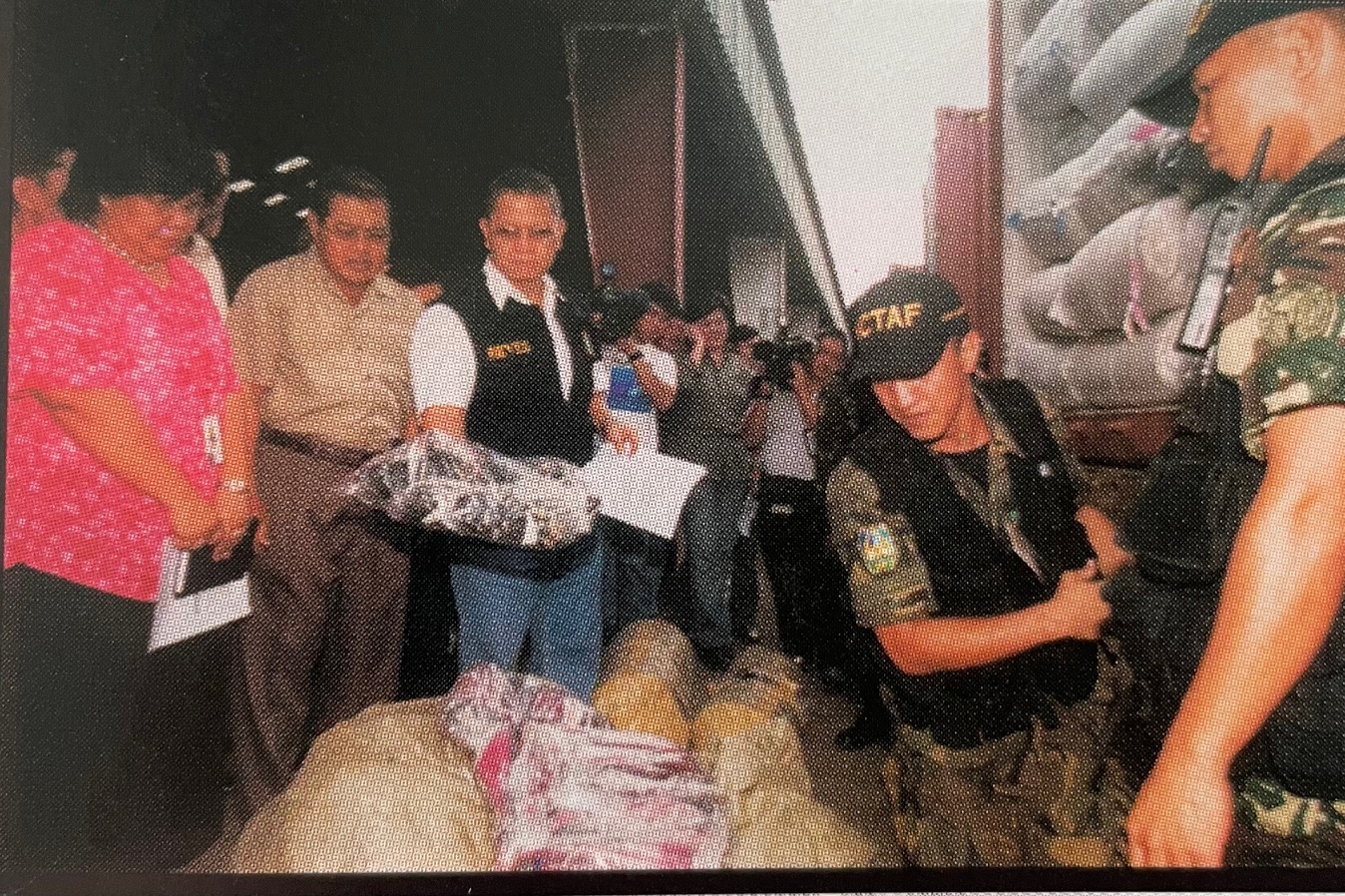
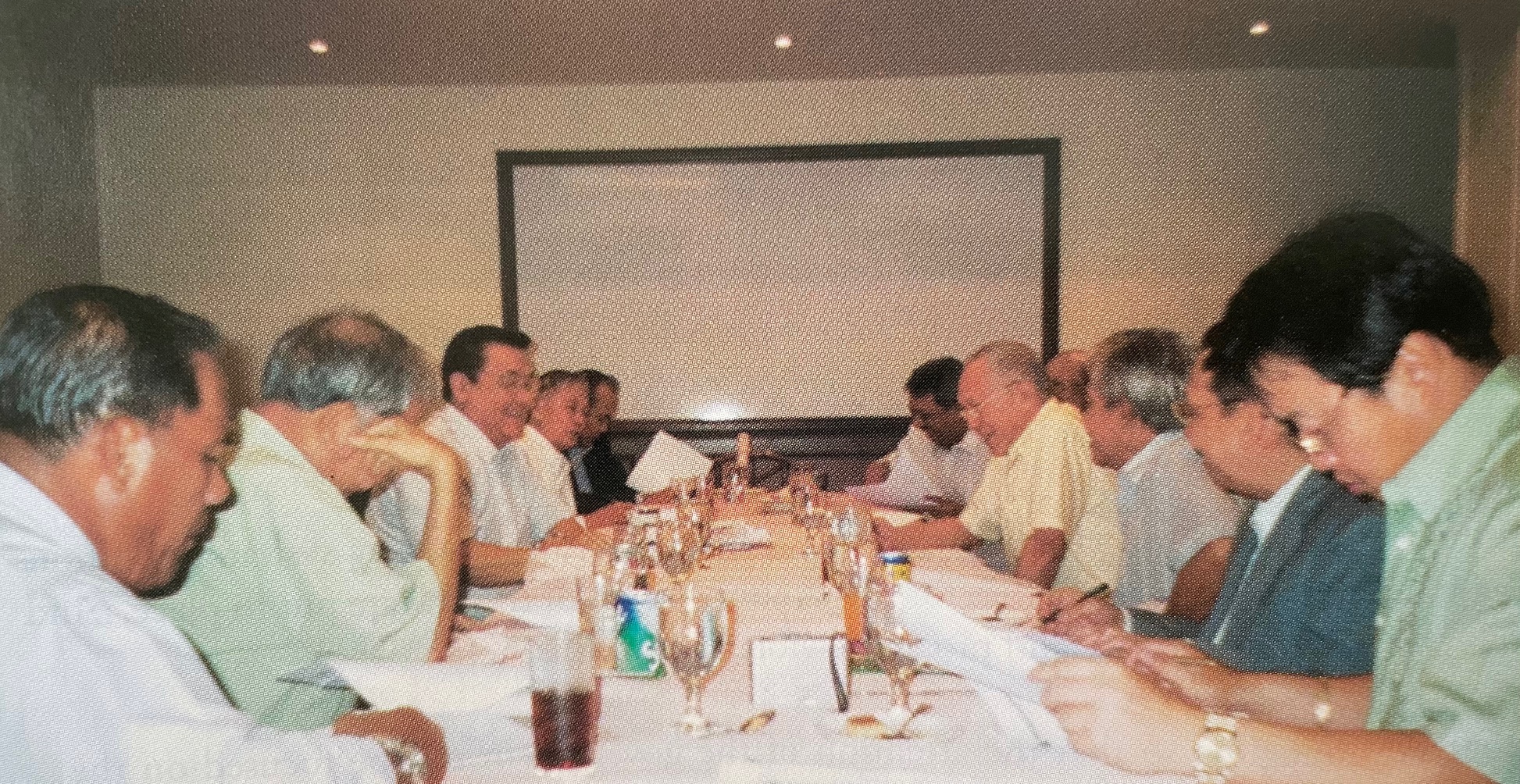
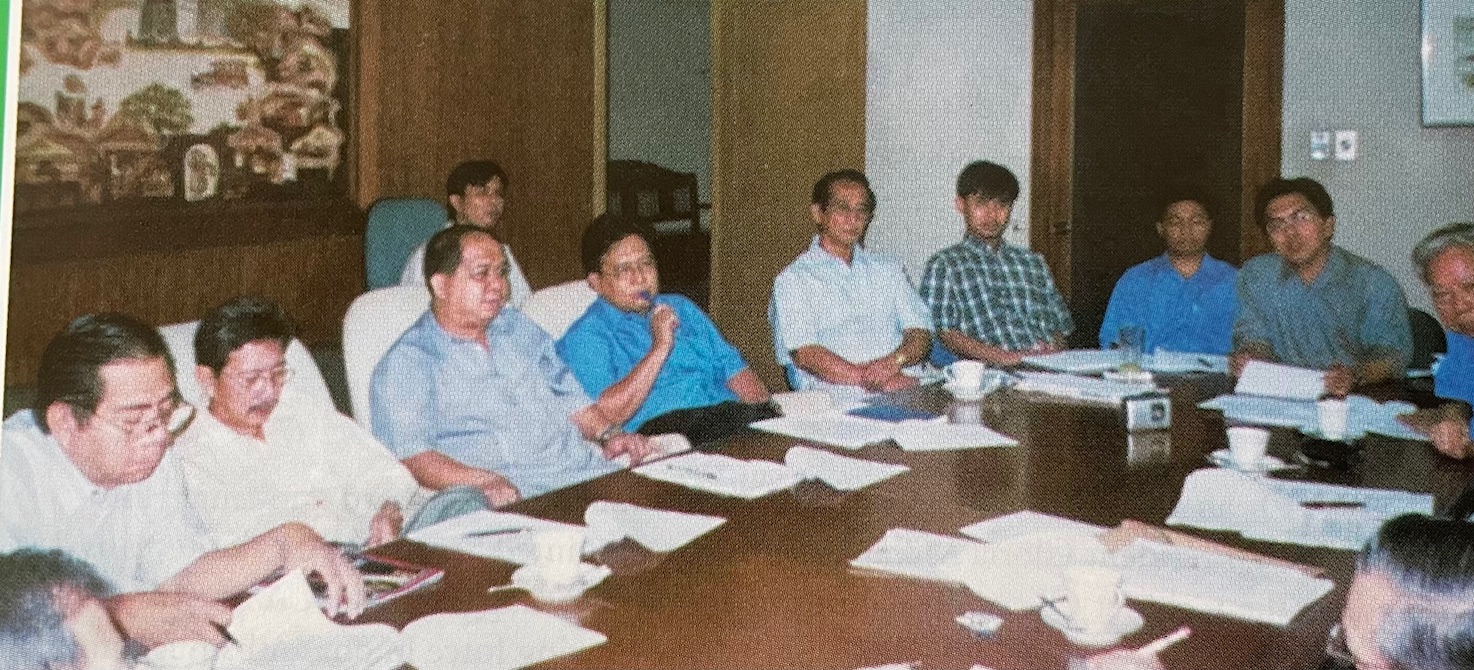
Creation of the NASTF on March 10, 2004
On March 10, 2004, the National Anti-Smuggling Task Force (NASTF), an inter-agency task force to orchestrate a consolidated anti-smuggling campaign was created. Pres. Gloria Macapagal-Arroyo appointed Sec. Angelo Reyes as its head. NASTF was to be guided by the Cabinet Oversight Committee on Anti-Smuggling (COCAS), with the Department of Finance as head.
FPI took an active role in this task force, and in just a few months of existence, the NASTF achieved some substantial gains such as establishment of a system for public access to Inward Foreign Manifest (IFM) which could help them in the early detection of smuggling, revision of the process flow for examination of reefer vans, investigated and examined the seized containers of smuggled shrimps from China.
However, for various reasons, NASTF was closed on August 25, 2004.
Reactivation of NASTF on 16 November 2004
Saddened by the closure of NASTF, the FPI strongly lobbied for its reactivation, gaining support from various stakeholders as well as the Senate Committee on Trade and Commerce, chaired by Senator Mar Roxas, who after conducting public hearings issued a Resolution urging President Arroyo to reactivate the NASFT.
On November 16, 2004, President Arroyo heeding the Senators’ call and issued EO 385 reactivating NASTF now known as Task Force on Anti-Smuggling (TFAS). Apart from an investigation and intelligence Division, it created several sub-committees to draw up recommendations for reform in several areas: 1) Customs Bonded Warehouse; 2) Special Economic Zones/Freeport; 3) Customs Valuation; 4) Purging of Importers, Brokers, Bonding Companies; 5) Agricultural and Food Products; 6)Petrochemical and Drugs, etc.
DOHA Round July Package
FPI, represented by Chairman Meneleo J, Carlos, Jr. and International Trade Policy Committee Chairman Jose Ma. Zabaleta, attended the International Trade Centre’s consultation regarding the DOHA July Package on October 21-22, 2004. The matters that were discussed included areas like: agriculture, business advocacy, textiles and clothing, non-agricultural market access, services, and trade facilitation, which were disseminated in turn to FPI members.
Non-Agricultural Market Access
On December 15, 2004, FPI submitted its position paper on NAMA negotiation to the Tariff Commission wherein it expressed the need to allow the local industry to have as much flexibility as possible by limiting the rate of reduction in the tariffs of non-agricultural products. Products that have tariffs above 20% may be brought to 20% depending on the industry while those products already at 20% be maintained in that level. FPI was targeting a higher co-efficient that will be used in the formula for tariff reduction of the bound tariffs so as to soften the blow of tariff rationalization.
2005
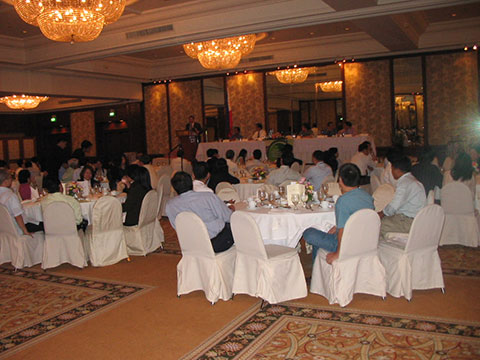
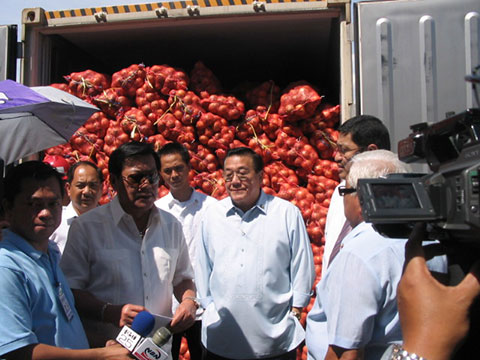
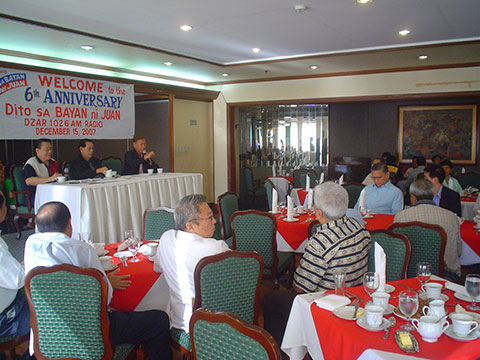
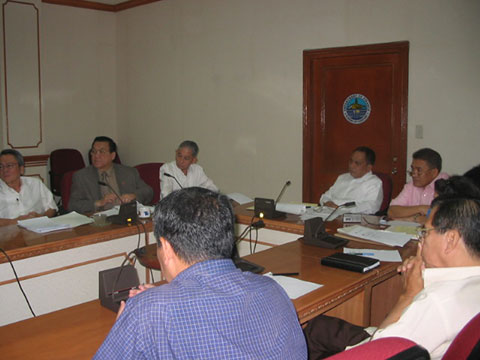
FPI’s commitment and launched its war against smuggling
The smuggling problem has deeply engulfed the bureaucracy and the best thing what the government should do is to address it with iron fist, because it has endangered the very foundation of the Philippine economy. The true source of revenue leakage is smuggling.
FPI linked with the National Anti-Smuggling Task Force (NASTF) then chaired by DILG Secretary Angelo Reyes and thereafter with the Task Force on Anti-Smuggling (TFAS), Department of Finance, Bureau of Customs, Bureau of Internal Revenue, among others, and generated significant result.
2006


The FPI Secretariat found a permanent home.
The FPI office at Unit 701 Atlanta Centre Condominium was completed and inaugurated on July 21, 2006, during the incumbency of the following Officers and Directors: Meneleo J. Carlos, Jr., Chairman; Jesus Lim Arranza, President; Edison T. Co Seteng, Executive Vice President; V. Francisco Varua, VP for Agriculture; Renato R. Ermita, VP for Manufacturing; George S. Chua, Treasurer; Ramon C. Agustines, Assistant Treasurer; Atty. Jose T. Baldonado, Corporate Secretary; Directors Jose Ch. Alvarez; Luna Go Cun Uy So; Ernesto M. Ordoñez; Arsenio N. Tanco; Henry A. Tañedo; Edwin Ll. Umali; Abeto A. Uy; and Atty. Rufino M. Margate, Jr., Secretary General.
The FPI office was set-up in Makati within the premises of the Textile Mills Association of the Philippines (TMAP).
Joint Employer-Labor Social Communiqué/partnership on decent work, productivity and competitiveness.
On November 13, 2006, FPI initiated the Chief Executive Officer (CEO) and Labor social dialogue to establish a joint communiqué anchored on decent work, productivity and competitiveness. And after a series of frank and open dialogues by FPI and the Fair Trade Alliance (FTA), the joint communiqué was signed on November 28, 2006 at Club Filipino, Greenhills, San Juan.
2007
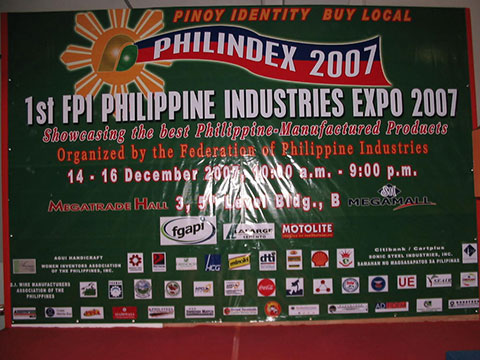
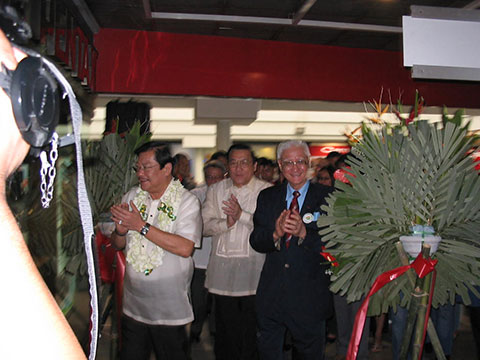
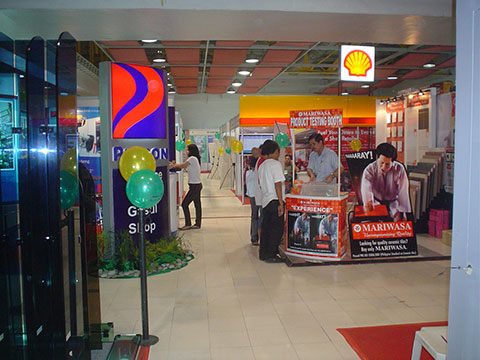
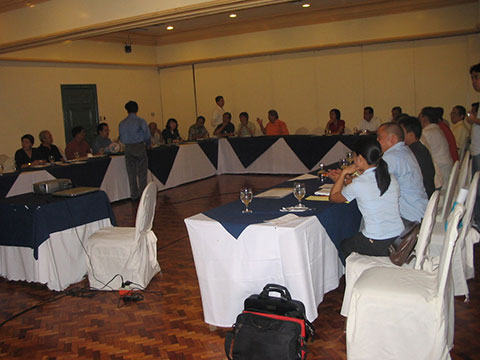
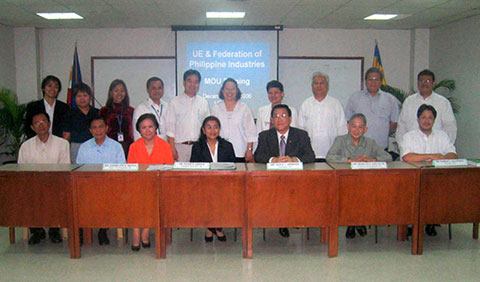
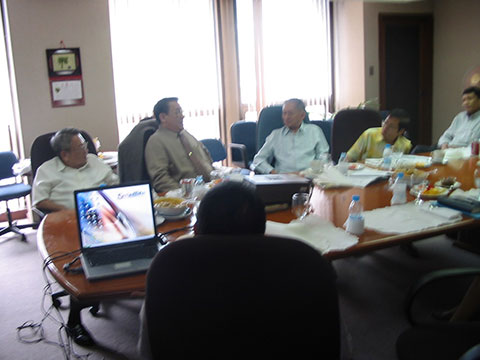
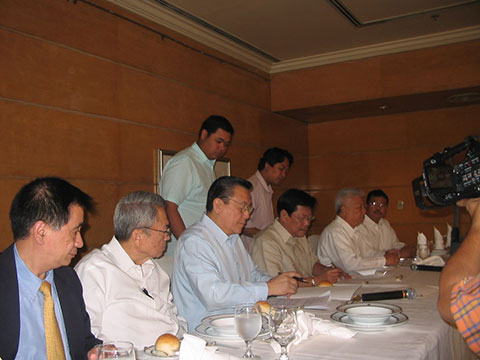
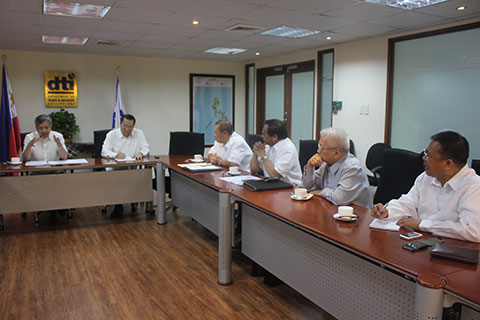
FPI Held its 1ST Philippine Industries Exposition (PHILINDEX)
In line with the Federation of Philippine Industries’ (FPI) intention to stimulate growth and development of the Philippine manufacturing industries generate public awareness on the role of Philippine industries in the vitality of our economy in relation to patronizing locally produced goods, FPI held the 1ST Philippine Industries Exposition (PHILINDEX) which was held on December 14, 15 and 16, 2007 at the SM Mega Trade Hall, Mega Mall, EDSA, Mandaluyong City.
The FPI office was set-up in Makati within the premises of the Textile Mills Association of the Philippines (TMAP).
Establishing the Philippine Labor Social Partnership Inc. (PELSPI)
To give flesh and operationalize the joint communiqué which was earlier signed by FPI and FTA, the Philippine Labor Social Partnership Inc. (PELSPI) was organized by both employers and labor on January 30, 2007 to uphold the mission and vision of harmonizing the relationship and strengthening the cooperation between the industrial and the labor sector for the betterment of our society. UP SOLAIR took active part in this endeavor.
FPI-UE and FPI-TESDA MOUs
In view that – 1) the converging intent of both the objective is to harmonize the human resources requirements of the industry, i.e., the office and the shopfloor based personnel, with that of the graduates of the country’s tertiary and vocational/technical educational institutions, and 2) the undertaking encompasses not only the concern of the quality of education and the marketability of new graduates, but also of policies regulating and overseeing the changes in the school’s curriculum, on two levels the FPI had entered into two Memorandum of Understandings (MOUs) with the University of the East (UE) and Technical Education and Skills Development Authority (TESDA).
The FPI office was set-up in Makati within the premises of the Textile Mills Association of the Philippines (TMAP).
FPI appointed as head of private Sector in the government’s anti-smuggling campaign.
Pres. Gloria Arroyo appoints FPI’s Pres. Jesus Lim Arranza as the head of the private sector in the anti-smuggling campaign of the government and requested him to attend all command conferences relating to this debilitating issue.
FPI and Presidential Anti-Smuggling Group (PASG) signed MOU
The Presidential Anti-Smuggling Group (PASG) and FPI signed a Memorandum of Understanding (MOU) to jointly combat smuggling. PASG was represent by its head Undersecretary Antonio A. Villar, Jr. and FPI Pres. Jesus Lim Arranza who was also appointed Senior Consultant of PASG. This partnership resulted in successful various anti-smuggling operations which include the famous destruction of smuggled luxury vehicles in Subic.
FPI wrote Supreme Court for special court on smuggling
FPI officially wrote the Supreme Court to create/designate special courts that would exclusively handle smuggling and customs related cases in view of the technicalities involved and especially considering that the government is losing a mind boggling P100 Billion annually in terms of unpaid taxes and duties due to smuggling.
FPI launched its official website
To further promote its various advocacies, the Federation launched its FPI Official Website.
FPI pushed for a separate “Department of Trade” and “Department of Industry”
FPI pushed for a separate “Department of Trade” and “Department of Industry”. Historically, these two departments were separately operating to address the concerns of the traders by the Department of Trade while that of the local manufacturers by the Department of Industry, until it was merged into one department. Noting that FPI was created precisely in view of the different interests of the traders vis-à-vis local manufacturers, FPI strongly advocated for a creation of a separate “Department of Industry” that will focus on the development of the local manufacturers and producers to maintain their global competitiveness.
2008
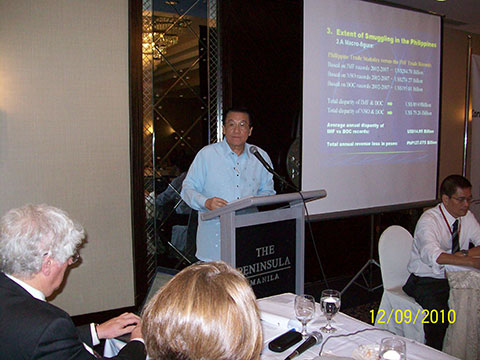
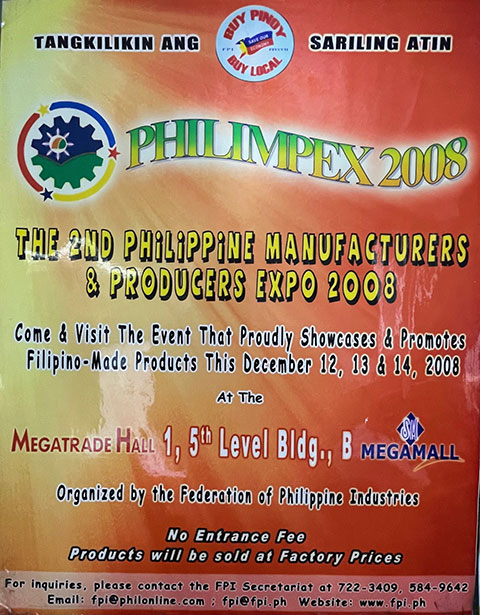
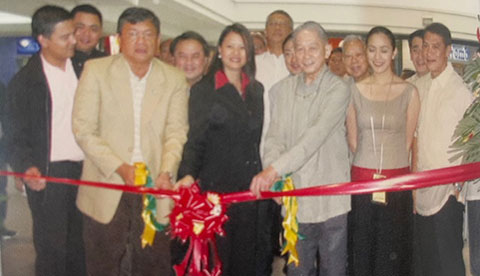
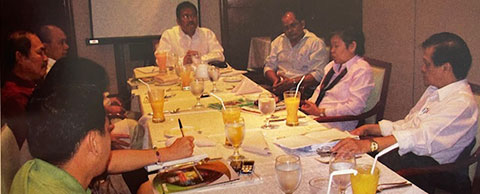
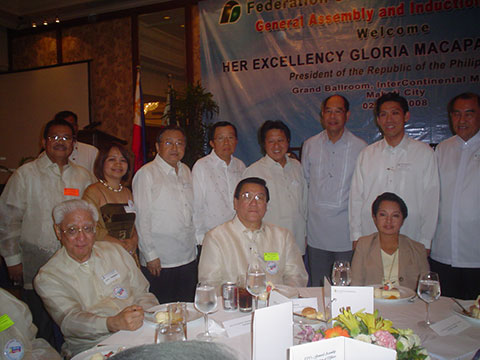
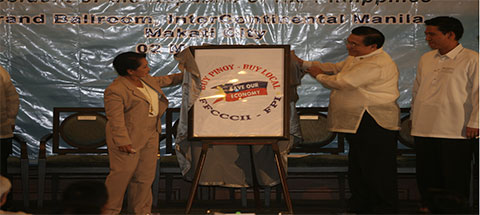
FPI exposed the discrepancy amounting to US$89.69 Billion between IMF, NSO, and BOC records
FPI presented the discrepancy between the International Monetary Fund (IMF), National Statistics Office (NSO) and Bureau of Customs (BOC) records showing that there is an unrecorded importation of US$89.69 Billion worth of exported goods to the Philippines annualy. Meaning, no taxes and duties were collected by the government for this unrecorded importation.
FPI conducted its 2nd Philippine Manufacturers & Producers Exposition on December 12, 13 & 14, 2008 at the Mega Trade Hall 1, SM Mega Mall, EDSA, Mandaluyong City.
The FPI office was set-up in Makati within the premises of the Textile Mills Association of the Philippines (TMAP).
FPI-PSMA-TESDA skills/competency upgrade project
FPI, TESDA and the Philippine Sugar Millers Associaltions (PSMA) conducted a skills mapping /Functional Analysis workshop to come up with a training regulation for the milling and refining activities of the sugar industry. Once this is done, this can serve as template for the rest of the various industries.
FPI initiated the President’s issuance of AO 227 giving preference to local manufactured products
Through the initiative of FPI PGMA issued Administrative Order No. 227 entitled “Directing All Heads of the Departments, Bureaus, Offices and Agencies of the National Government Including Local Government Units (LGU’s); Government-Owned And/or Controlled Corporations (GOCCS), Government Financial Institutions (GFIs), State Universities And Colleges And Military And Police Units To Give Preference In The Procurement Of Materials And Supplies, Produced, Made And Manufactured In The Philippines. FPI candidly believed that if the government’s various department and agencies will take the lead in patronizing locally produced and manufactured products, this will tremendously helped the continued development of the local industries, preserve employment and increase the government revenues in terms of payment of taxes. This is particularly considering that the Philippines is not yet a signatory in the WTO relative to government procurement.
FPI appointed as head of private Sector in the government’s anti-smuggling campaign.
Pres. Gloria Arroyo appoints FPI’s Pres. Jesus Lim Arranza as the head of the private sector in the anti-smuggling campaign of the government and requested him to attend all command conferences relating to this debilitating issue.
FPI and FFCCCII launched the “Buy Pinoy – Buy Local”
FPI in partnership with FFCCCII launched the “Buy Pinoy – Buy Local” patronize locally made products.
2009
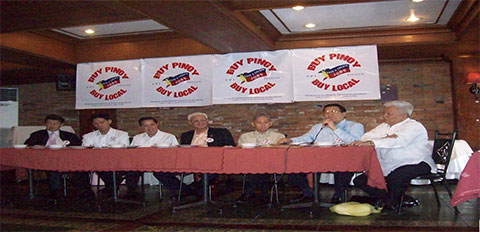
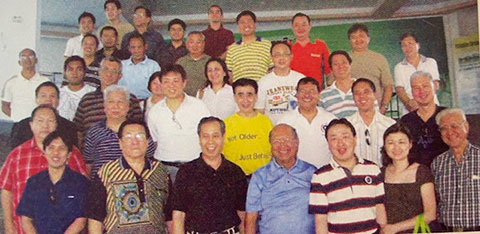
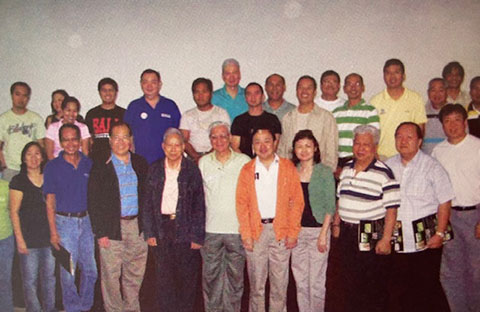
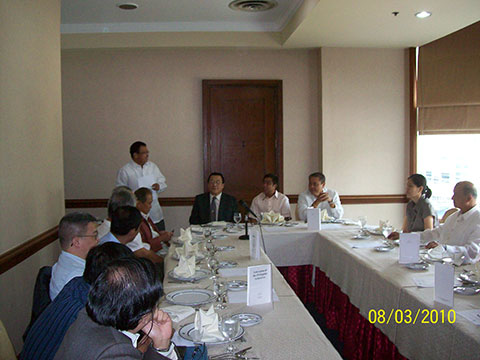
FPI conducted the “Buy Pinoy, Buy Local” Summit which was held on June 10, 2009, at Club Filipino Greenhills, San Juan City.
This” Buy Pinoy Buy Local” Summit gathered policy makers, economists, academe, private and labor sectors to promote patronizing locally produced and manufactured products.
FPI Board attended a two-day Corporate Farming live-in seminar in Muñoz, Nueva Ecija on January 09 & 10, 2009,in preparation for adopting a farmer to boost rice production.
The FPI Board attended a two-day Corporate Farming Live-in Seminar in Muñoz, Nueva Ecija in preparation for adopting a farmer to boost production. Participating FPI Corporation Members will provide capital, fertilizer, drying equipment, agricultural materials. The members will also directly buy the products from the farmers to maximize their profits and thereby removing the middleman.
FPI being the organization of local manufacturers and producers decided to field its own Industry Technical Expert (ITE) separate from the Industry Commodity Expert (ICE) being handled by the Philippine Chamber of Commerce and Industry (PCCI), which FPI earlier allowed the latter to do.
When PCCI unreasonably required FPI members who assigned their respective Industry Commodity Expert (ICE) to compulsory register as PCCI member, upon the strong requests of the various industry associations to form its own industry experts, the FPI Board passed a resolution approving the formation of a separate Industry Technical Expert (ITE) which will be handled by FPI. Upon this organization of FPI ITE, all industry associations transferred all its technical expert to FPI. The formation of a separate Industry Technical Expert (ITE) was justified because FPI is a Federation local manufacturers and producers as against’s PCCI whose majority of members are retailers and traders.
FPI in coordination with TESDA and Philippine Sugar Millers Association (PSMA) workshop on September 17, 2009 in order for TESDA to guide the PSMA members’ Technical Expert, HRM and production in filling out the TESDA approved Competency Standards Development Guide.
FPI initiated the Inventors-Investor matching project.
FPI initiated the Inventors-Investors matching project to identify Filipino inventors that could create/invent new technologies that could be offered and presented to FPI Members for its consideration and implementation.
FPI regularly conducted Industry Orientation Program for the Bureau of Customs (BOC) to inform the latter of the various modus operandi on smuggling used by unscrupulous importers as well as to address the problem of personnel reassignments to other post or section.
2010
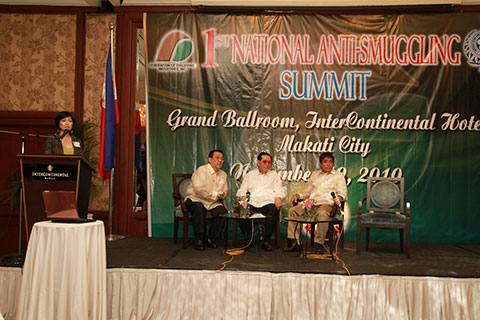
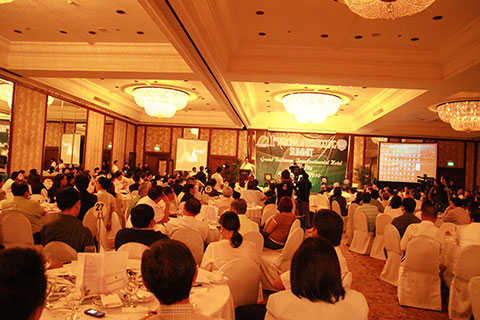
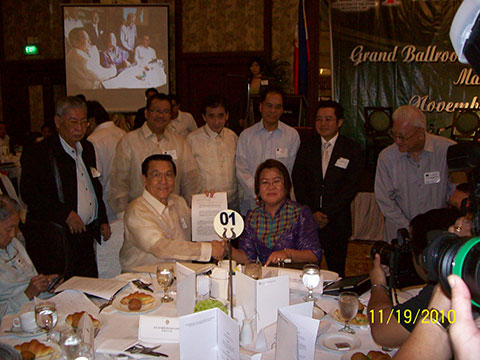
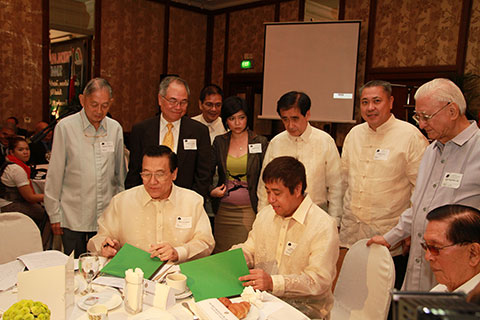
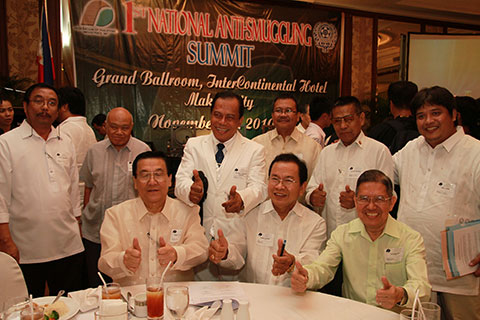
FPI held its First (1st) National Anti-Smuggling Summit which was held on November 19, 2010 at the Intercontinental Manila, Makati City.
This Summit gathered policy makers, government enforcerment agencies to raise public awareness of the grave impact of smuggling to government coffers in terms of unpaid revenues, local companies relative to its capacity utilization, and unemployment as a result thereof.
DOJ and FPI signed MOA
Secretary Leila M. De Lima representing the Department of Justice (DOJ) and Chairman Jesus Lim Arranza of the Federation of Philippine Industries (FPI) signed the DOJ-FPI Memorandum of Agreement (MOA) during the 1st National Anti-Smuggling Summit which was held on November 19, 2010 at the Hotel InterContinental, Makati City.
BOC and FPI signed MOA
BOC Com. Angelito Alvarez representing the Bureau of Customs (BOC) and FPI Chairman Jesus Lim Arranza executed the BOC-FPI Memorandum of Agreement during the November 19, 2010 1st National Anti-Smuggling Summit.
MOA between FPI-FIS & FPI-OEMAP signed
The bilateral agreements between FPI and Filipino Inventors Society (FIS) as well as FPI and Original Equipment Manufacturing Association of the Philippines (OEMAP) were likewise signed during the Anti-Smuggling Summit. FIS was duly represented by its National Chairman Bormeo Modanza and OEMAP was represented by its President Horacio B. Freires while FPI was duly represented by Chairman Jesus Lim Arranza.
FPI advocated for industry association members to get their fifty (50%) share from the Trade Remedies Fund.
FPI advocated on behalf of its industry association members particularly the Ceramic Tiles Manufacturers Association (CTMA) and the Flat Glass Association of the Philippines (FGAPI) to get their fifty (50%) share from the Trade Remedies Fund particularly on safeguard measure duties collected by the government as the Safeguard Measure Law specifically provide that one-half of which must go to the industry affected in order to upgrade the said sector, while the other half will go to the government.
2011
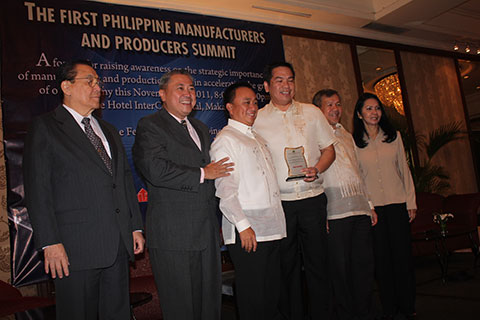
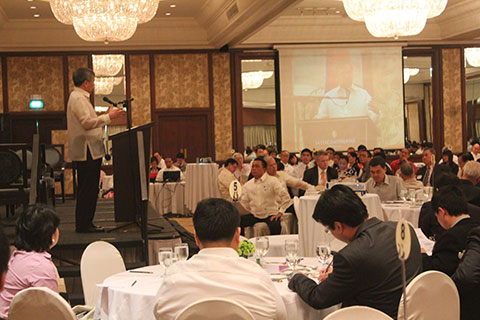
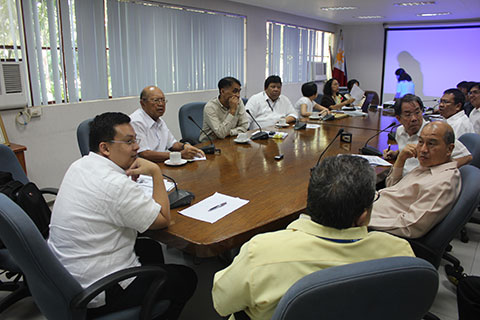
FPI initiated, organized and held the First (1st) Philippine Manufacturers and Producers Summit which was held on November 24, 2011 at the Intercontinental Manila, Makati City.
2012
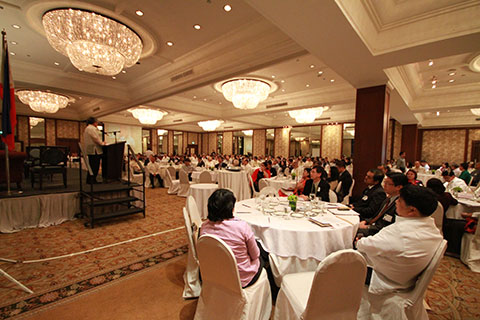
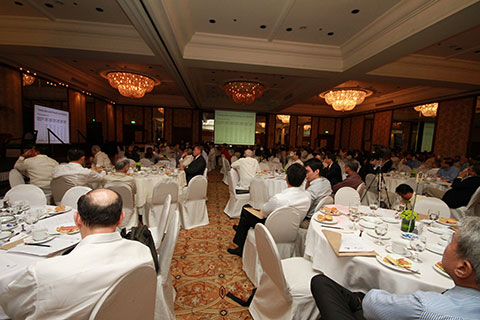
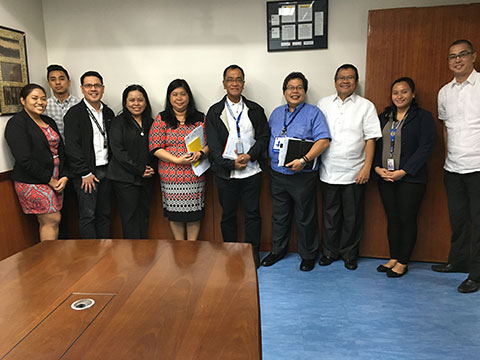
FPI held its 2nd Philippine Manufacturers and Producers Summit with the theme “Pursuing Industrialization for a Progressive Philippines” on November 22, 2012 at the Hotel InterContinental Manila, Makati City, paving the way for crafting the industry roadmaps.
The 2nd Philippine Manufacturers and Producers Summit discussed the Country’s progress in industrial planning, emerging opportunities and binding constraints, sectoral roadmapping experience, and the critical horizontal and vertical policies for industry to create inclusive and sustainable economic growth in the Philippines. Thus, this paved the way for the crafting of the roadmaps of the various FPI local manufacturing industries.
DOF appointed FPI as a private sector representative in the Committee for Accreditation of Cargo Surveying Companies (CACSC) that screens and accredits cargo surveying companies under the Department of Finance.
FPI caused the comparative study of the progress of countries with one department vis-a-vis countries with different Department of Trade and Department of Industry in support of its advocacy to have a separate departments.
FPI took active part in the deliberation of the various Anti-trust bills which are pending in the legislature.
2014
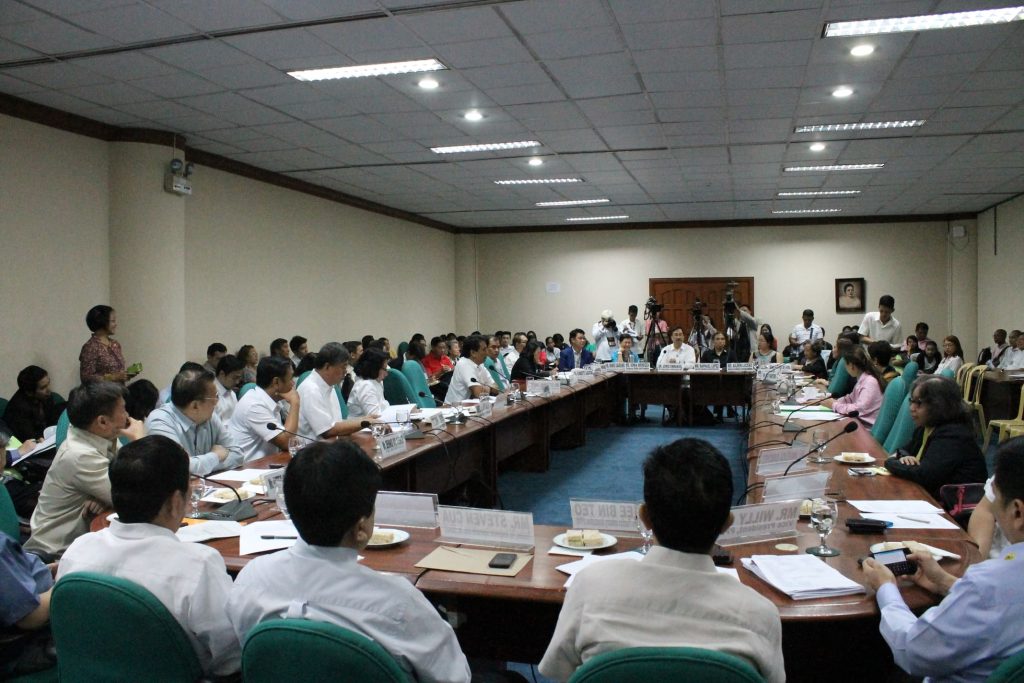
FPI requested the Commission on Audit (COA) to audit the Special Education Fund (SEF).
Taking note that fifty five (55) years ago or on September 28, 1968 when RA 5447 was enacted otherwise known as “An Act creating a Special Education Fund (SEF) to be Constituted from the proceeds of an Additional Real Property Tax and a certain portion of the taxes on virginia-type cigarettes and duties on Imported Leaf Tobacco, defining the activities to be financed, creating School Boards for the purpose, and appropriating funds therefrom’. This already raised Trillions of pesos, yet, the country is still experiencing lack of classrooms, books, teachers, among others. Hence, FPI formally requested the Commission on Audit (COA) to conduct an audit of this SEF which the COA initially confirmed that its right implementation is wanting.
FPI issued a position paper on incineration that no regulation should be imposed on any technology or process, and what should be regulated is what goes up in the air as well as those that goes to the water and soil.
FPI bats for “Clear Writ of Kalikasan”.
2015
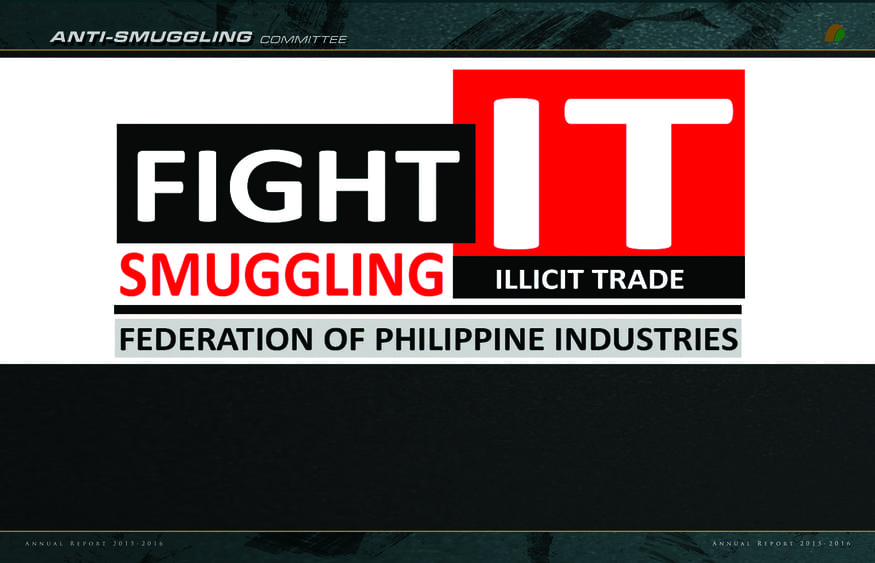
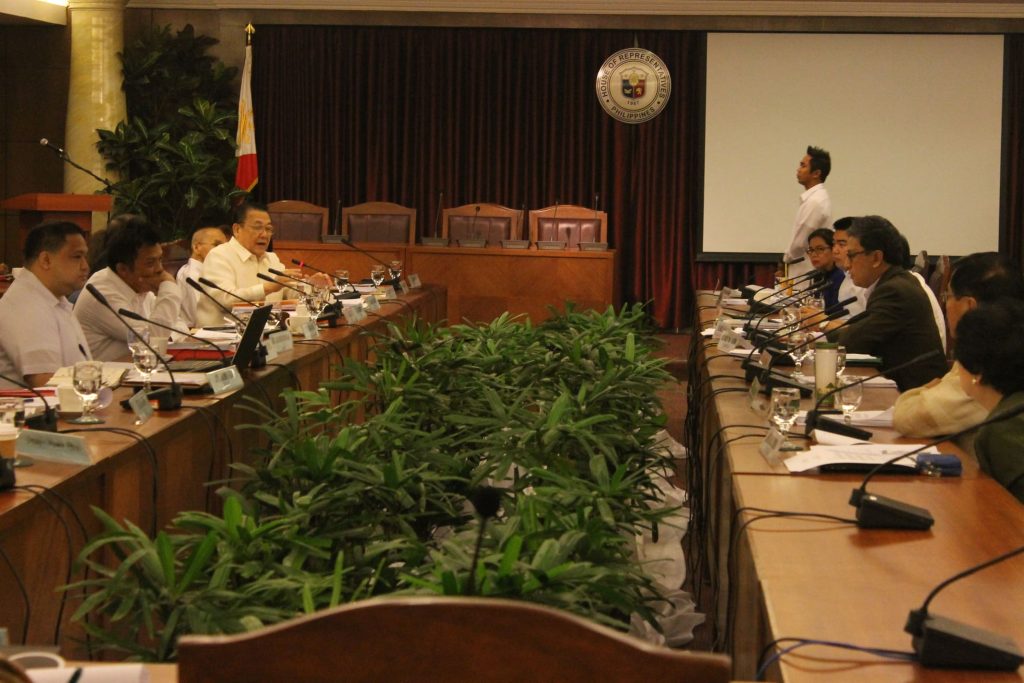
FPI Launched the Fight-IT (Illicit Trade), a multi-sectoral movement intended to protect consumers, safeguard government revenues and shield legitimate industries from the ill-effects of smuggling as well as linked closely with Crime Stoppers International (CSI), Bureau of Customs, other concerned government as well as enforcement agencies and continuously attended legislative hearings to tackle this economic menace.
Our Federation participated in the House of Representatives’ Technical Working Group (TWG) in the crafting of the Customs Modernization and Tariff Act (CMTA).
FPI pushed for the use of palm oil for biodiesel.
FPI represented all stakeholders in strongly opposing government’s controlled chemical list for lack of meaningful consultation.
2017
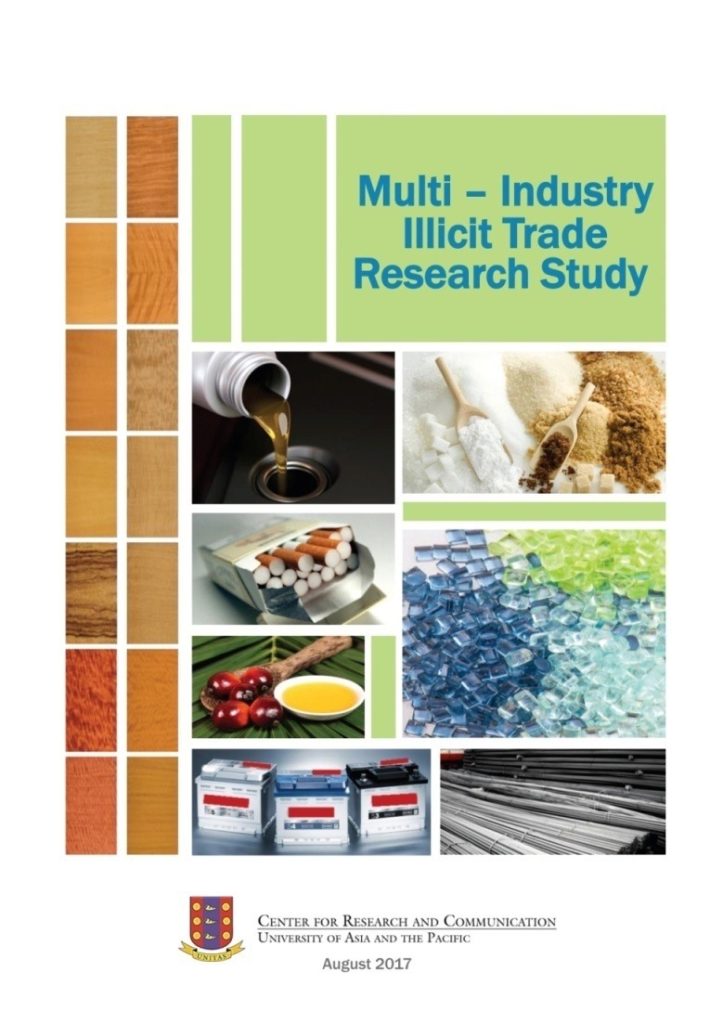
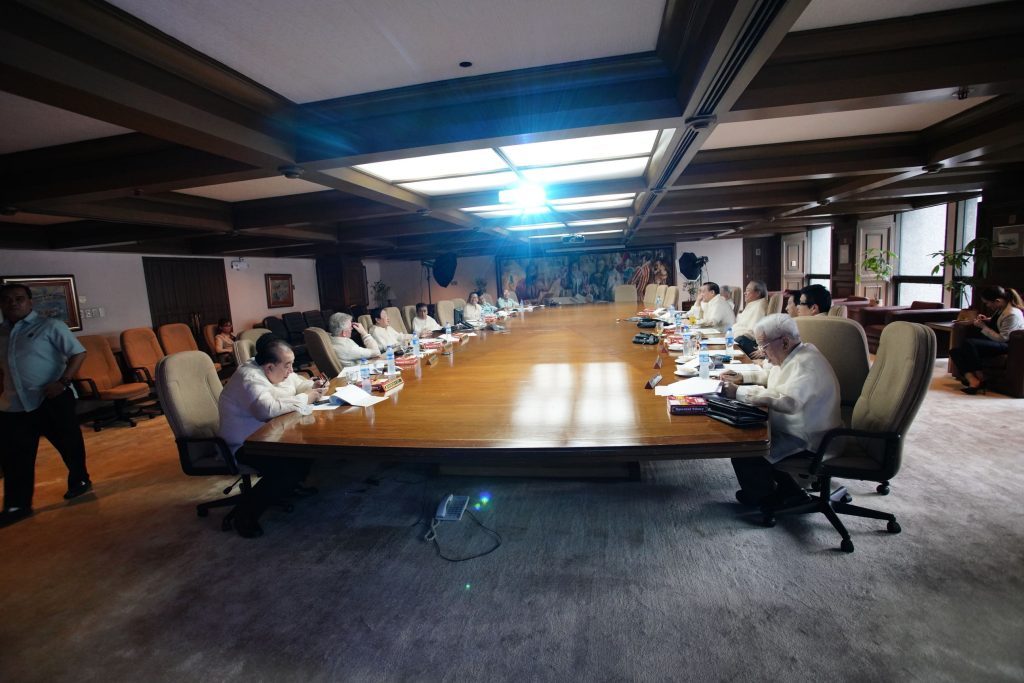
The Center for Research and Communication, University of Asia and the Pacific was commissioned by FPI to conduct a multi-industry illicit trade barometer research study covering: 1. Cigarette; 2. Petroleum; 3. Coconut/Pal Oil; 4. Sugar; 5. Resin; 6. Battery; 7. Steel Bars; and 8. Plywood, to analyze the Philippine imports from 2011-2015 by quantity, value and price.
On August 2017, this study on the prevalence and impact of Illicit Trade in the country showed that as much as PhP900 Billion worth of goods were smuggled into the Philippines, thereby validating the earlier independent findings of FPI of the serious tax leakages.
On environment, in the Intended National Declared Commitments (INDC) FPI strongly manifested that climate change mitigation must be “aligned with national priorities, circumstances and capabilities”. Thus, FPI called on policymakers, legislators and concerned stakeholders to support efforts to reduce greenhouse gas (GHG) emissions and support the country’s INDC through co-benefit and alternative measures instead of curtailing industrial activities such as construction of power plants.
FPI conducted the Sustainable Reporting Training in October 2017 at Dusit Thani.
On November 6, 2017 FPI conducted its first seminar on Sustainability Reporting. FPI gained the distinction of being the only institution in the word that is spearheading the practice of Sustainable Development in the country through an association led advocacy and recognition system.
FPI supported the Water Summit.
The Federation advocated two (2) projects, namely: a) adopt a farm community by providing fertilizers, certified seeds and see the resulting increment in the harvest; and, b) plant along the highways fruit trees which are adaptable in the area.
2018
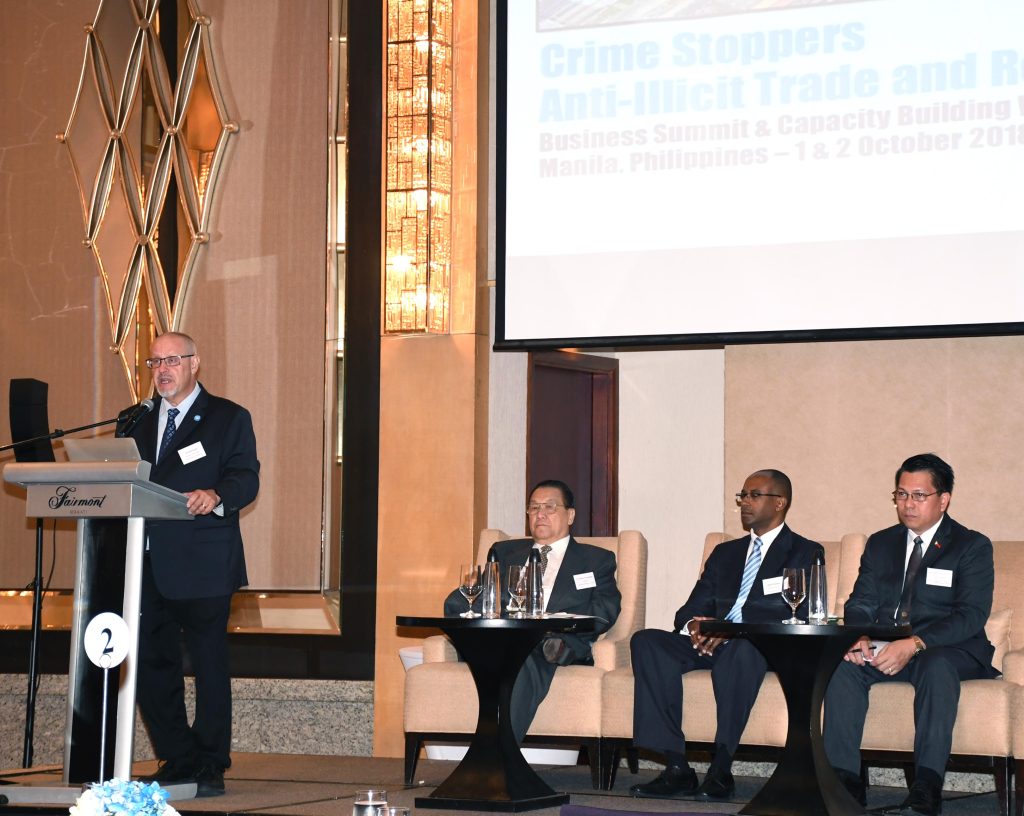
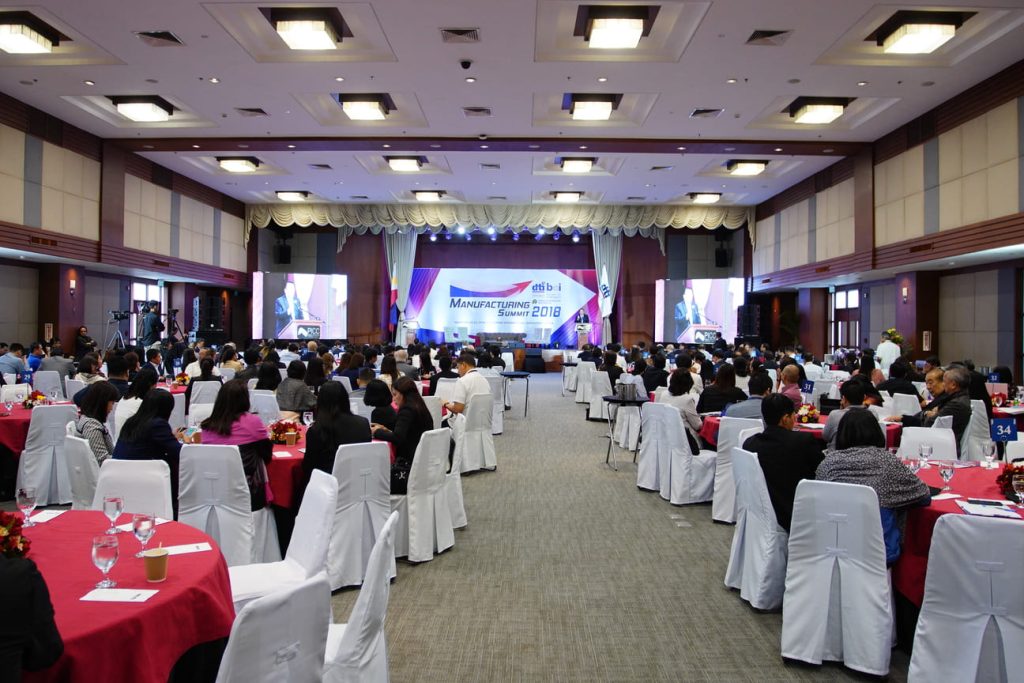
FPI broadened its fight against smuggling by creating the Anti-Crime Council of the Philippines (ACCP).
FPI organized the Anti-Crime Council of the Philippines and tied-up with multi-sectoral group with Jesus Lim Arranza as its Chair.
The Federation supported the Anti-Illicit Trade Business Summit
FPI partnered and supported the Anti-Illicit Trade Business Summit held on October 1, 2018 at Fairmont Hotel Makati City which was organized by the Crime Stoppers International in collaboration with the Crime Stoppers Australia and was attended by key government agencies and concerned business organizations.
FPI formally wrote the Department of Finance (DOF) about the possible tax leakage of the massive importations using the De Minimis and whether government data is capturing it.
FPI supported and participated in the 2018 Manufacturing Summit which was held on November 22-23, 2018 at the Philippine International Convention Center.
2019
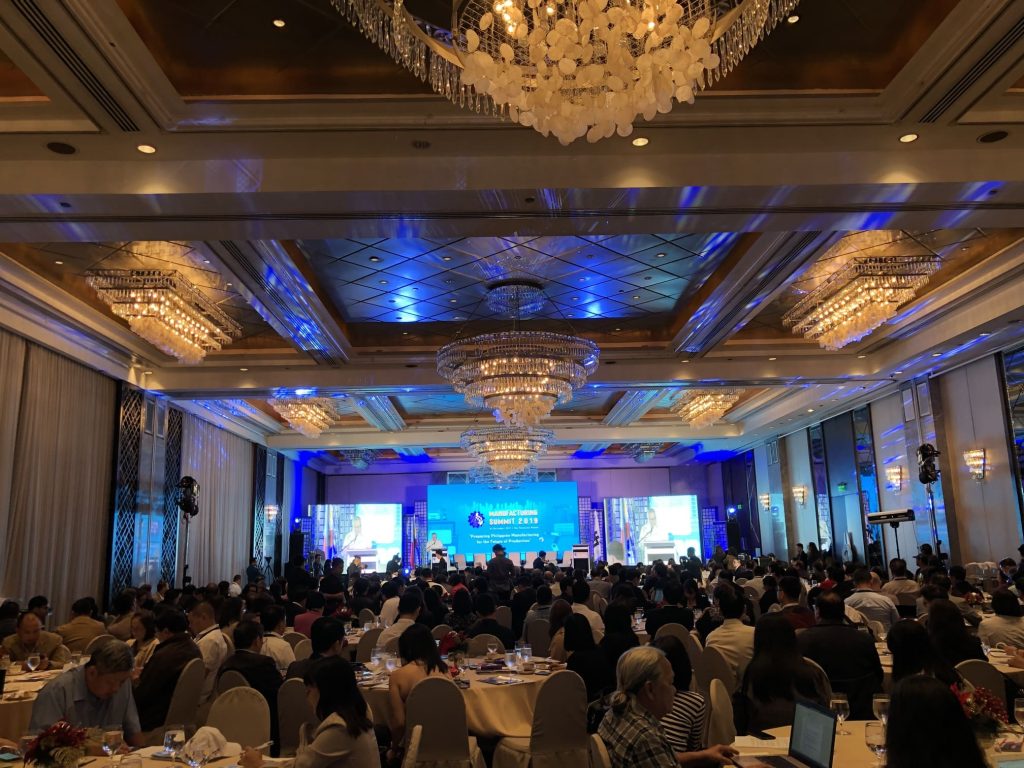
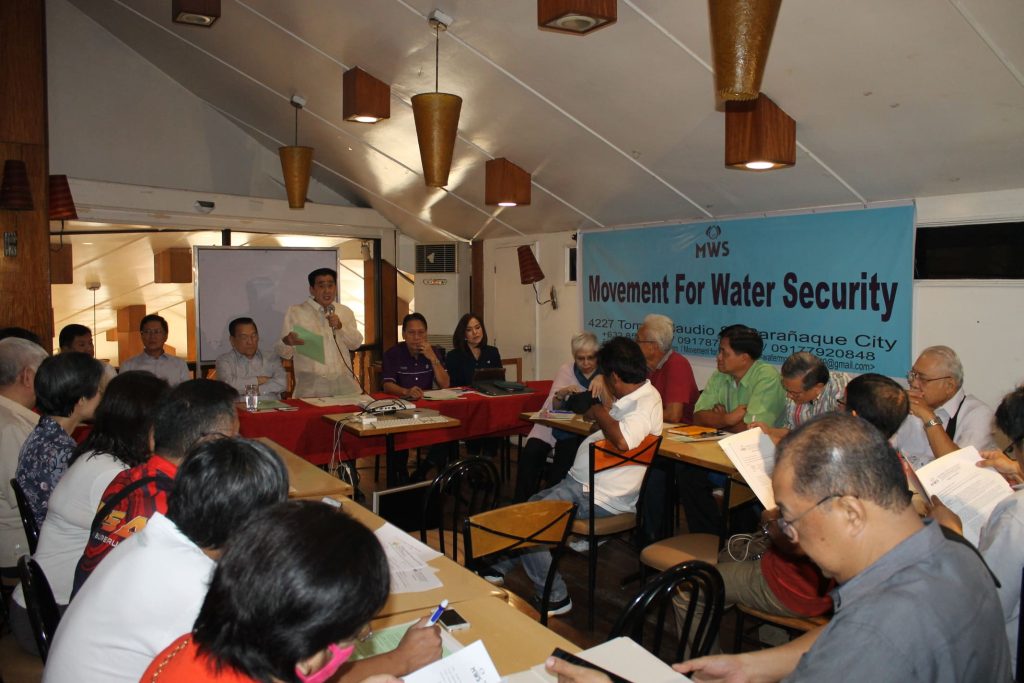
FPI co-signed the statement on Movement for Water Security.
In the report of the National Water Resources Board (NWRB) it was stated that “despite the abundance of water sources in the country, our water security index ranking still remains low. In fact, based on the study conducted by the Asian Development Bank (ADB), the Philippines is surprisingly ranked 38 out of 48 among member countries with regards to National Water Crisis Index. ADB observed that the real culprit behind this problem is our inappropriate management practices rather than the physical scarcity of water itself”.
To address the short supply, FPI advocated for the importations of brand new trucks and buses instead of second hand.
FPI supported and participated in the 2019 Manufacturing Summit which was held on December 3, 2019 at the Manila Peninsula Hotel, Makati City.
2020
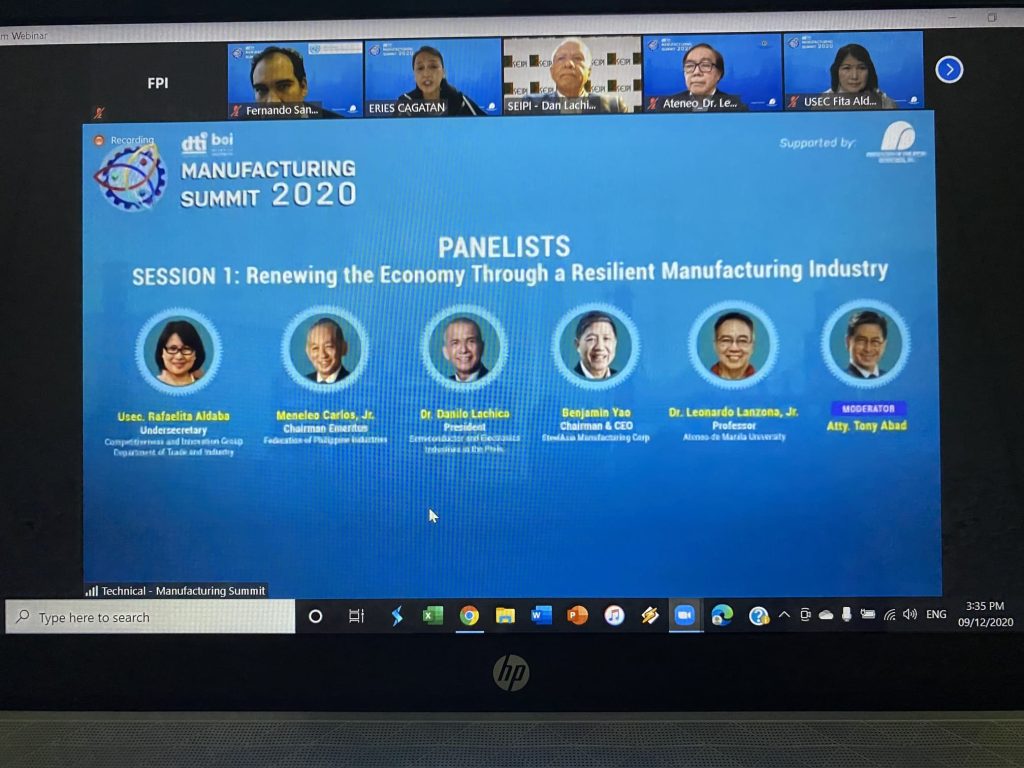
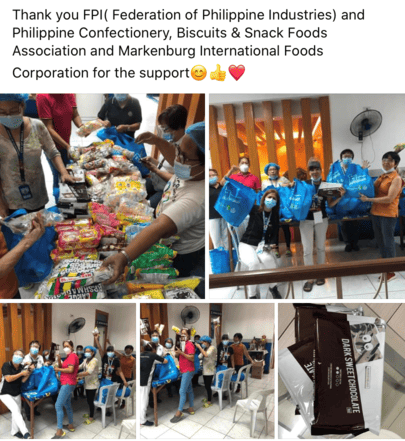
FPI advocated for the segregation of plastic and to use them as fuel/energy instead of banning plastic.
The Federation issued a clarificatory letter about the National Waste Management Commission Resolution signed by Sec Cimatu banning single used plastic in government offices since it is not in accordance RA 9003 IRR which requires a) 2/3 votes of the seventeen (17) members of the commission, b) a phaseout period before they could pass this kind of resolution, as well as the absence of a life cycle analysis and c) that any alternative to the product must not be 10% more than the current cost.
FPI with caution took active part in helping industry normalize its operation during the Covid-19 Pandemic.
FPI supported the call of Sec. Dominguez to liberalize further the quarantine rules for Metro Manila and many other urban areas, with the precaution that those factories and barangays with Covid-19 cases be dealt with more strictly.
FPI likewise recommended the following:
- The use of jeepneys which is the primary means of public transportation because they are much safer than the airconditioned versions in reducing the viral load during transport, – provided that all passengers wear masks.
- Liberalize the movement in the countryside which affect agriculture and forestry economies, and which are hardly affected by Covid due to the open space and low viral loads as this will help to revive our agriculture and forestry enterprises.
- Equipped the FPI Secretariat with a faster WiFi service and install facilities to allow Directors to attend Board meeting through Zoom videocon and other modern amenities.
- Created a Healthcare Committee chaired by the members in the pharmaceutical sector.
FPI shared food products to Covid-19 Frontliners assigned in various Health Centers and Quarantine Facilities.
FPI opposed the proposed Excise Tax on junk foods considering that 80% of the production from our industry members in the confectionery sector are already fortified with vitamins. Hence, coining them as “junk food” is not only accurate, but, unfair as well.
FPI supported and participated in the 2020 Manufacturing Summit which was held on December 9-11, 2020 via Zoom Flatform.
2021

FPI hosted an online Forum on “Creative Private Initiatives on Product Standards and Enforcement” which was held on March 3-12, 2021 via Zoom Platform.
The Federation took active participation in the Department of Science and Technology (DOST) – Science for Change Program (S4CP). President Alberto D. Lina was named as FPI Permanent Representative and attended various DOST-S4CP meetings and activities.
FPI took active participation in the Inter-Agency Task Force on Steel that is dedicated in addressing the concerns of this important industry.
The Federation through its Chairman Dr. Jesus Lim Arranza exposed Palm Oil smuggling supposedly imported to be used as animal feeds, thus exempt from paying VAT, when in fact this are fit for human consumption.
FPI supported and participated in the 2021 Manufacturing Summit which was held on August 25-26, , 2021 via Zoom Platform.
The Federation urged President Rodrigo R. Duterte to veto Senate Bill No. 2425 and House Bill No. 10696 which is the resulting bill for Expanded Producers Responsibility (EPR) as the promotion of public health and safety is clearly part and parcels of the police powers and responsibilities of the State.
By requiring manufacturers, by themselves, to perform this function of collecting waste from the communities, both urban and rural, and in disposing the same, which is inherently a government function, the government is absconding from its obligation to do so under the general welfare clause of the Constitution.
2022

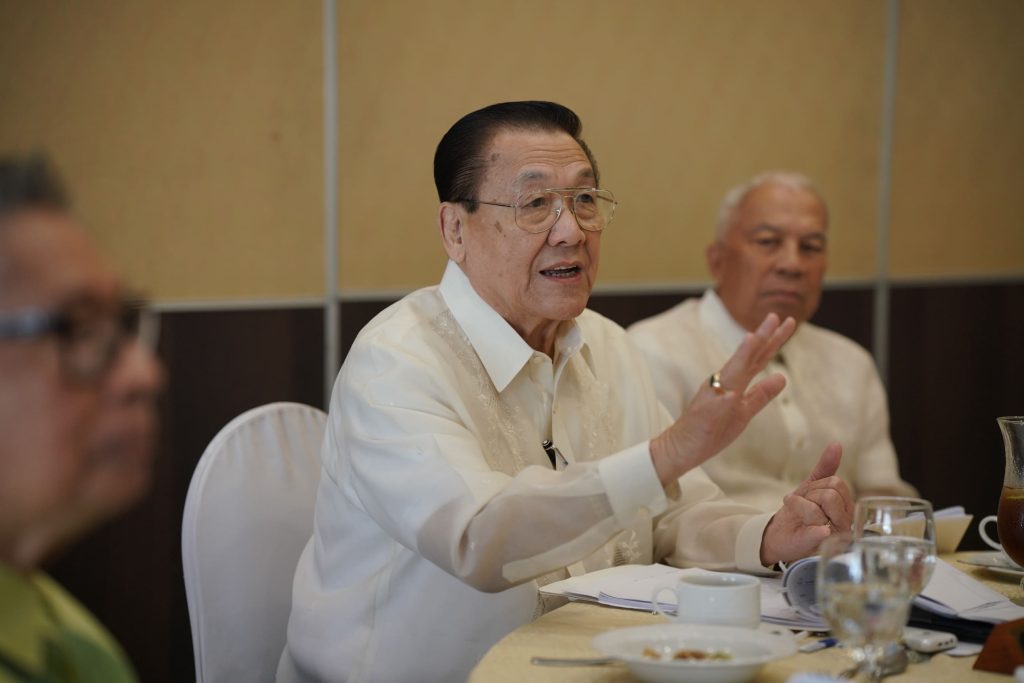
FPI’s Chairman Jesus Lim Arranza was appointed as one (1) of the three (3) representatives in the independent review panel of the Technical Education and Skills Development Authority (TESDA).
FPI pushed for the removal of Terminal Appointment Booking System (TABS) and Container Deposit (CD) which is one of the causes why the logistics cost in the country is about 28% one of the highest in the Asean region.
The Supreme Court affirmed the conviction of the officers of Kingson Trading for smuggling which FPI and members from the Steel Industry initiated and filed.
2023
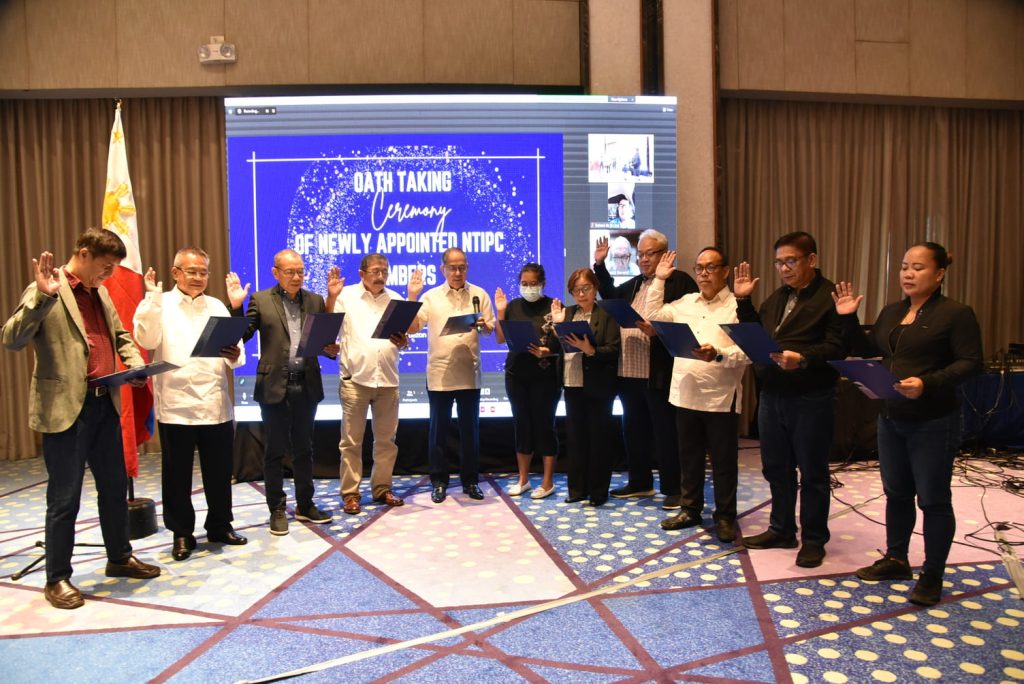
FPI’s Atty. Rufino M. Margate, Jr. was appointed as one (1) of the employer sector representatives in the National Tripartite Industrial Peace Council (NTIPC).
2024

On July, 25, 2024 FPI launched the First (1st) National Anti-Illicit Trade Summit at the Manila Hotel which was attended by concerned government regulators and enforcement agencies.
After the Summit, with due coordination by FPI members and enforcement agencies many raids were conducted and confiscated various smuggled and substandard materials nationwide.
Indeed, FPI not only prides itself as the Voice of Industry but also Walk its Talk.
2025
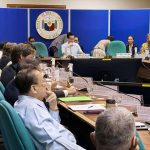

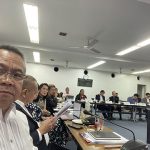
FPI served as resource speaker during the Senate Hearing on Rising Incidents of Illicit Trade on Excisable Products
FPI Chairman Dr. Arranza serving as a resource person during the hearing and after sharing his experience on the Kingson Trading Case, Madag Tires Case, Ukay-Ukay, Palm Olein, Illegal smelters, Gas Cylinders, Glass, among others, proposed the following:
- Cooperation between the private sector and the Government regulatory bodies.
- Strengthen the first line of defense which is the Bureau of Customs (BOC) as well as the other lines of defense including the Food and Drug Administration (FDA) and the Bureau of Internal Revenue (BIR).
FPI shared the industry insights during the 2025 International Tobacco Summit
FPI Chairman Arranza discussed “Tracking Illicit Trade in the Philippines: Insights from the Industry” during the International Tobacco Summit entitled “Advancing the Local Tobacco Industry and Combatting Illicit Trade” held last January 27-28, 2025 held at Quezon Rooms 1-2, Seda Vertis North, Diliman, Quezon City.
The National Tripartite Industrial Peace Council (NTIPC) where FPI is one of the employer representatives passed the Revised Rules on Single Entry Approach (SEnA)
our impact.
by the numbers
Works Done
last year revenues
members
our achievements.
What the Environment Committee is Doing
The Mandatory Environment Insurance Coverage (MEIC)
All industry members of FPI should have been levied insurance premium for environmental damage even if no environmental damage would result from the industries. Basis of premium was asset of company not environment.
Through the intercession of the environment committee and Chair JLA
with key support of the Senator J P Enrile the MEIC was held in perpetual abeuance. The first department order of the late DENR Secretary Angie Reyes withheld the implementation of the MEIC
The Mass Emission Rate Standard or "MERS"
Contested the validity of E.O. 97-A where the Supreme Court resolved that no imported goods regardless of quantity can be brought out of Subic, Clark and other Economic Zones without paying the proper taxes and duties;
Initiated the launching of the "Buy Pinoy, duties; Buy Local" movement with the Federation of Filipino-Chinese Chambers of Commerce and Industry, Inc. (FFCCCII), to patronize locally made products, which is the market based solution against smuggling;
Responsible for the issuance of A.O. 227 which requires all government offices to procure locally made products;
Executed a Memorandum of Agreement (MOA) with the Office of Ombudsman to fight graft and corruption in both the private and government sector, particularly in smuggling related cases;
Partnered with the Presidential Anti Smuggling Group (PASG) in the raids and apprehensions of smuggled goods, recovering billions in revenues to the government;
Executed a Memorandum of Agreement (MOA) with the Department of Justice (DOJ) in the case building and prosecution of smuggling cases; building and prosecution of smuggling cases;
Executed a Memorandum of Agreement (MOA) with the Bureau of Customs (BOC) and fielded Industry Technical Experts (ITE) to assist the latter in monitoring technically smuggled goods and those covered by mandatory certification in major ports;
Initiated and pushed for the establishment and development of the roadmaps of the various local industries;
Took the cudgels of the manufacturing industries during the power crisis;
Launched the FIGHT IT (Fight Illicit Trade) and created the Anti-Crime Council, abroad-based, multi sectoral movement intended to protect consumers, safeguard government revenues and shield legitimate industries from the ill effects of smuggling, fake products, and other illicit trades (including white collar crimes), under the umbrella of the Federation of Philippine Industries.

